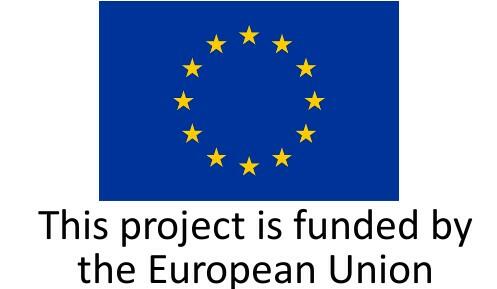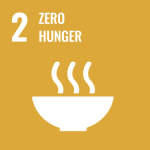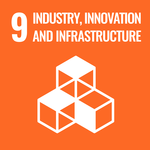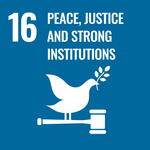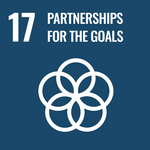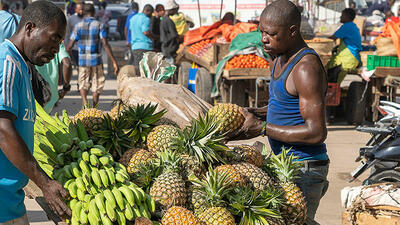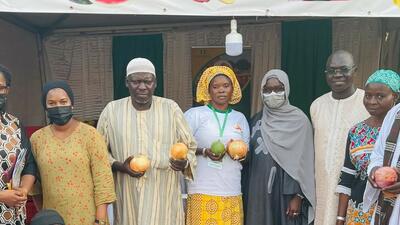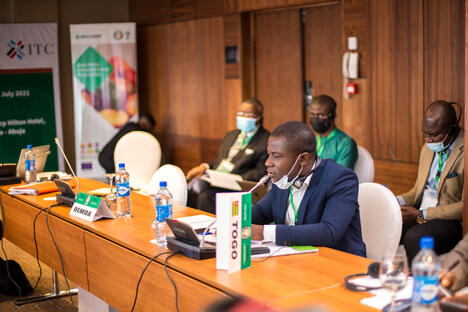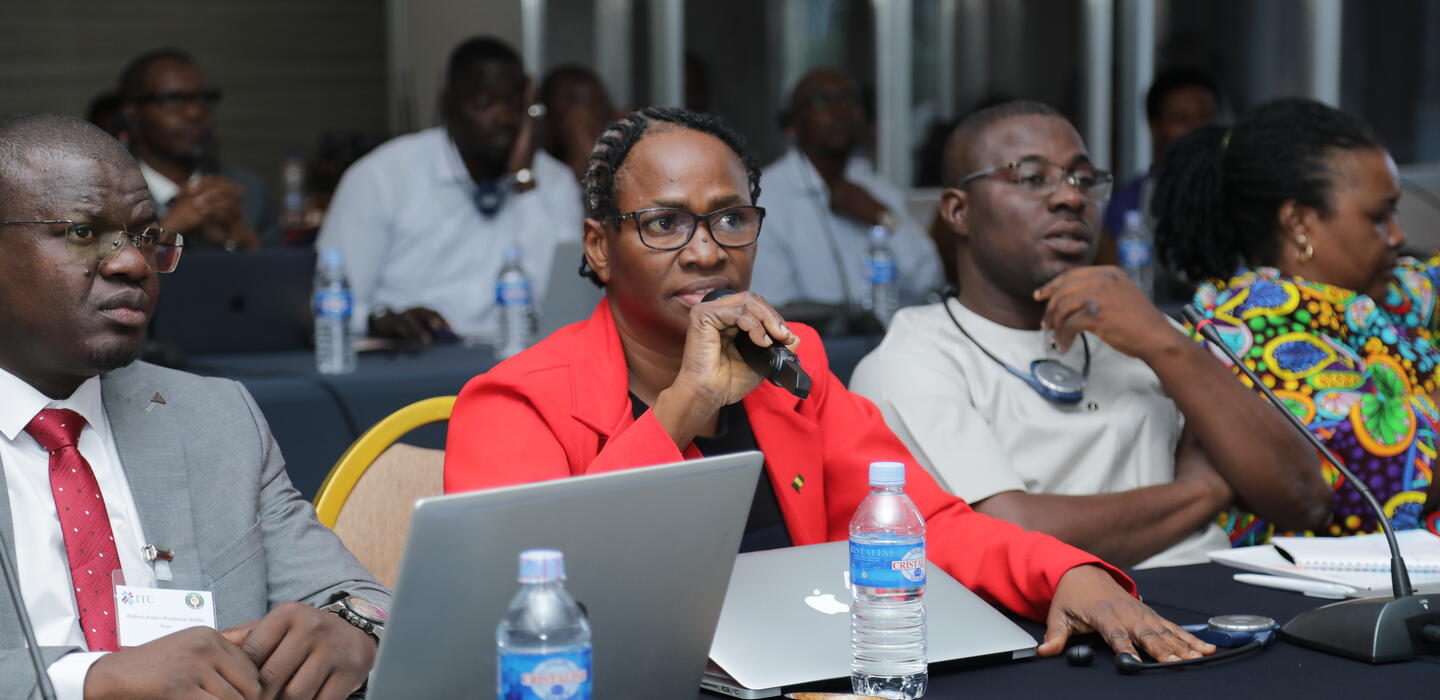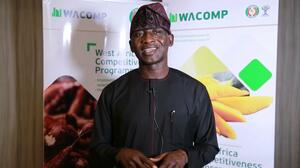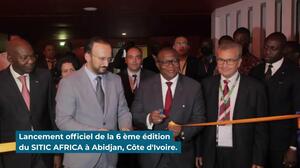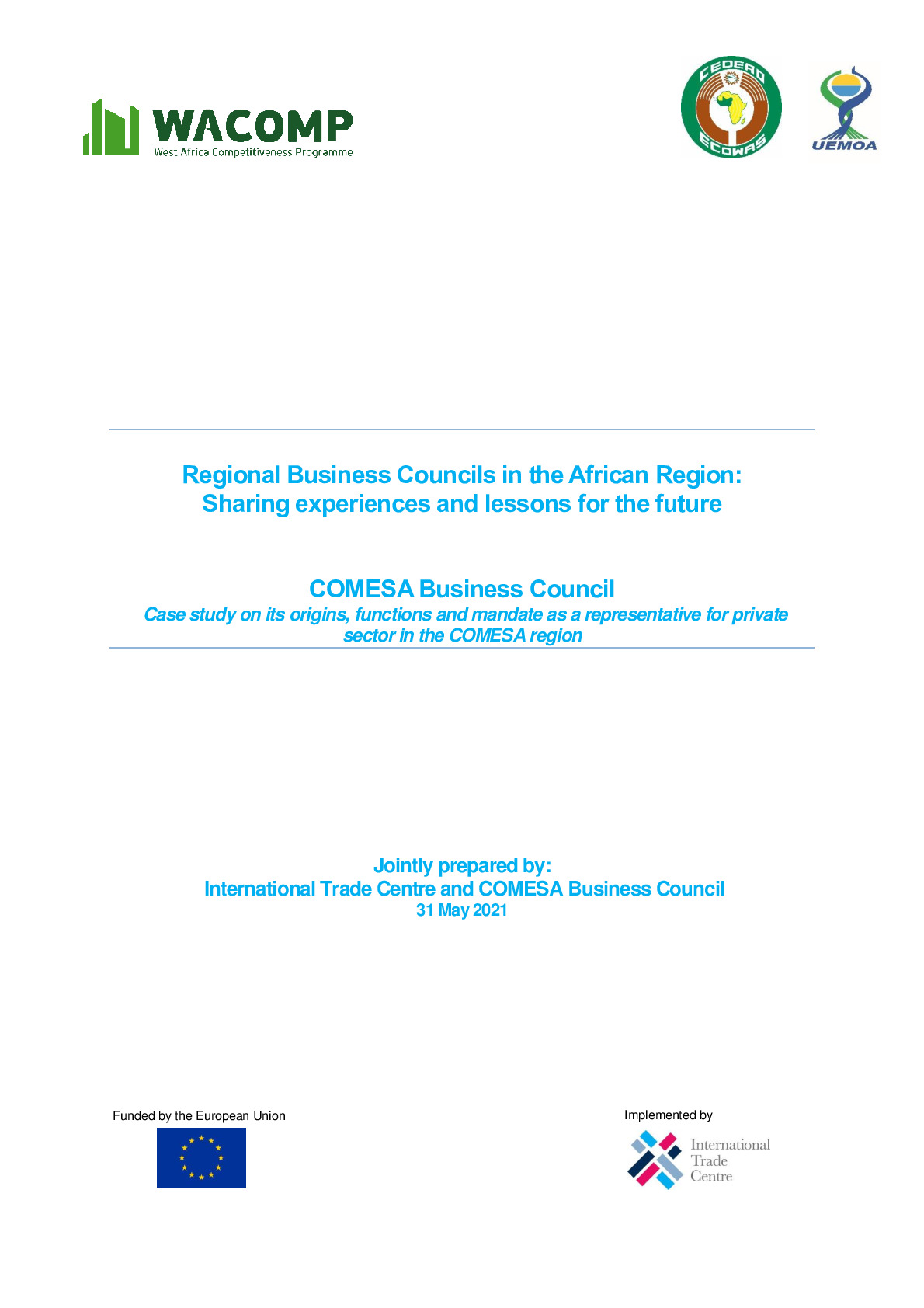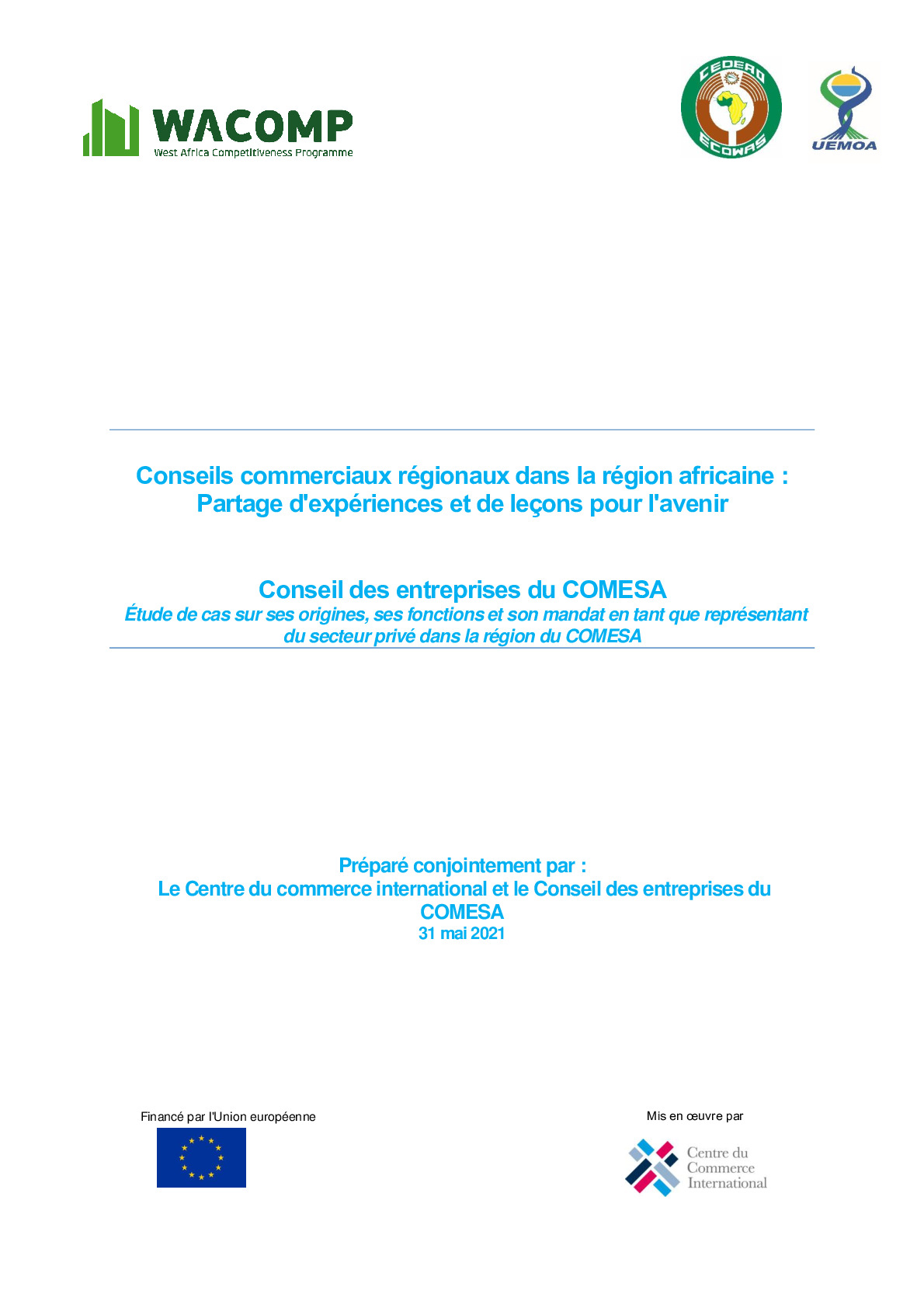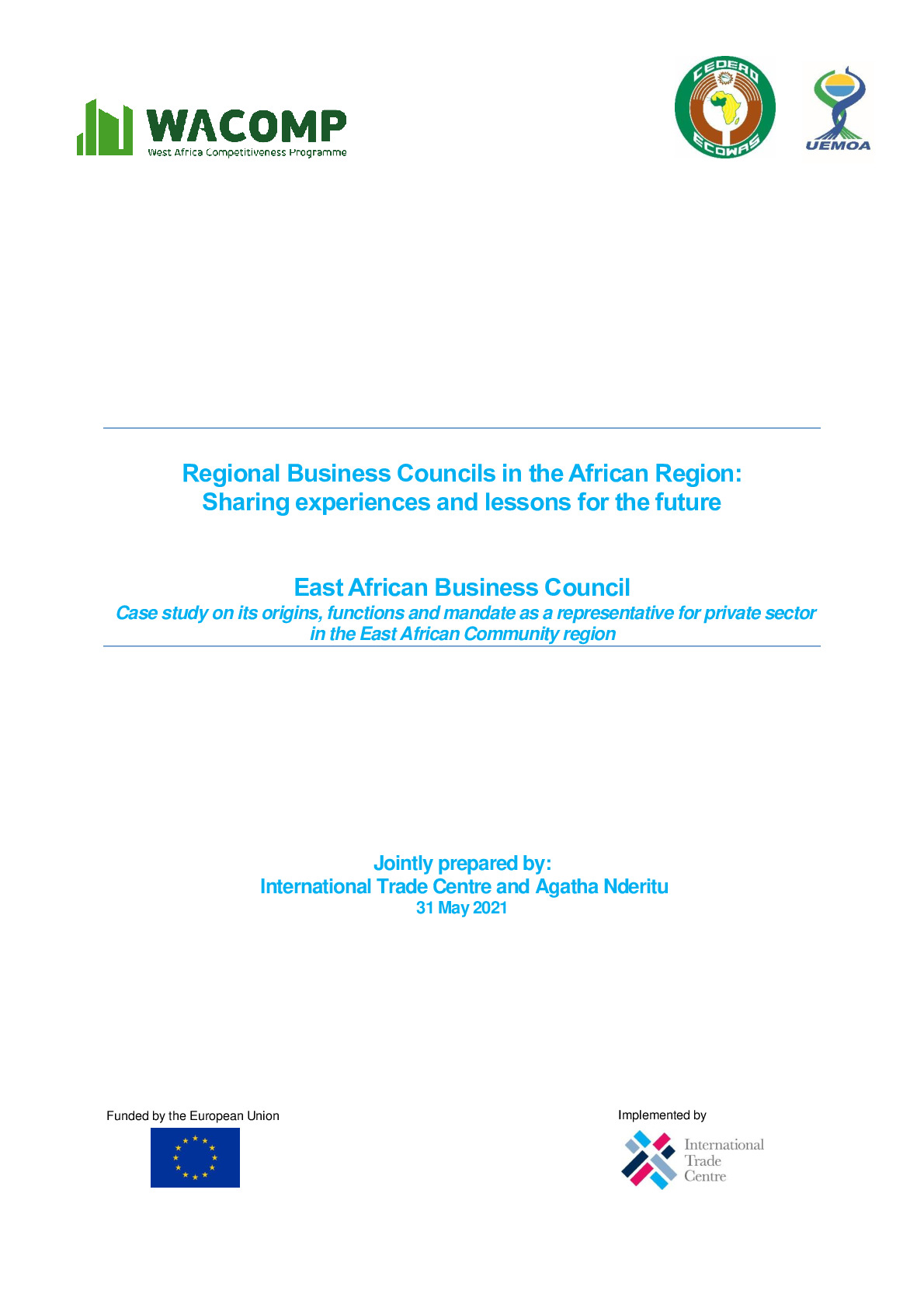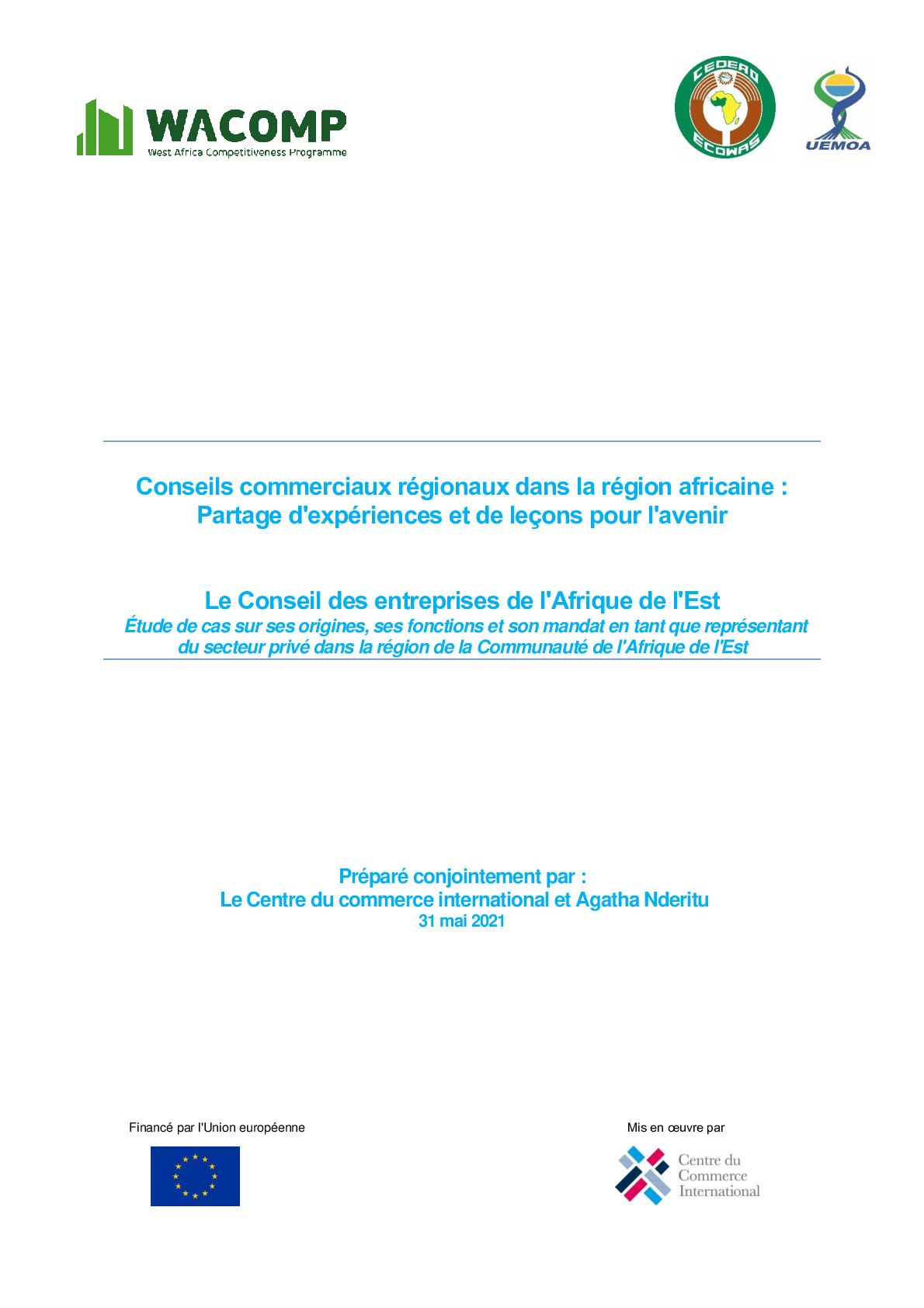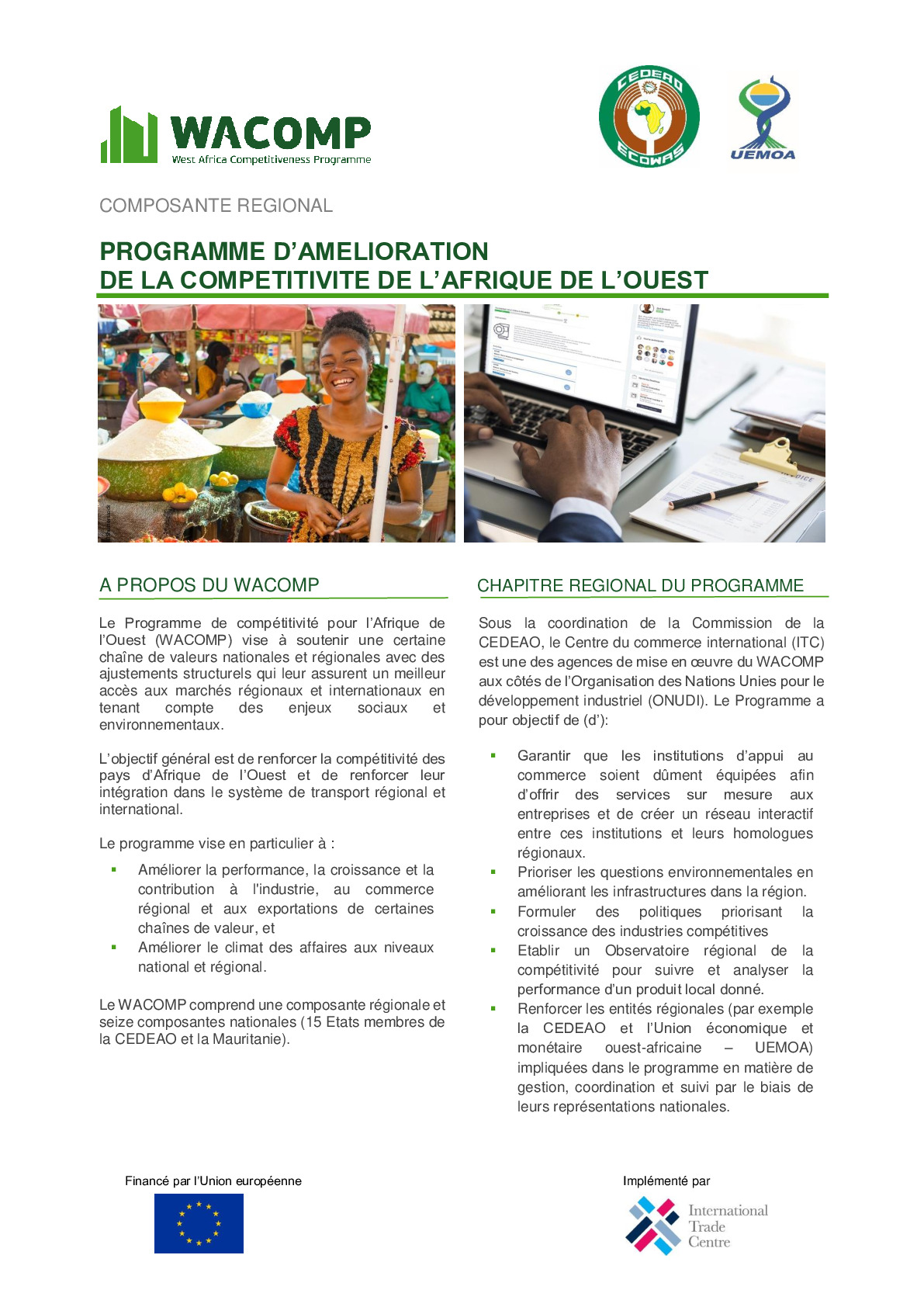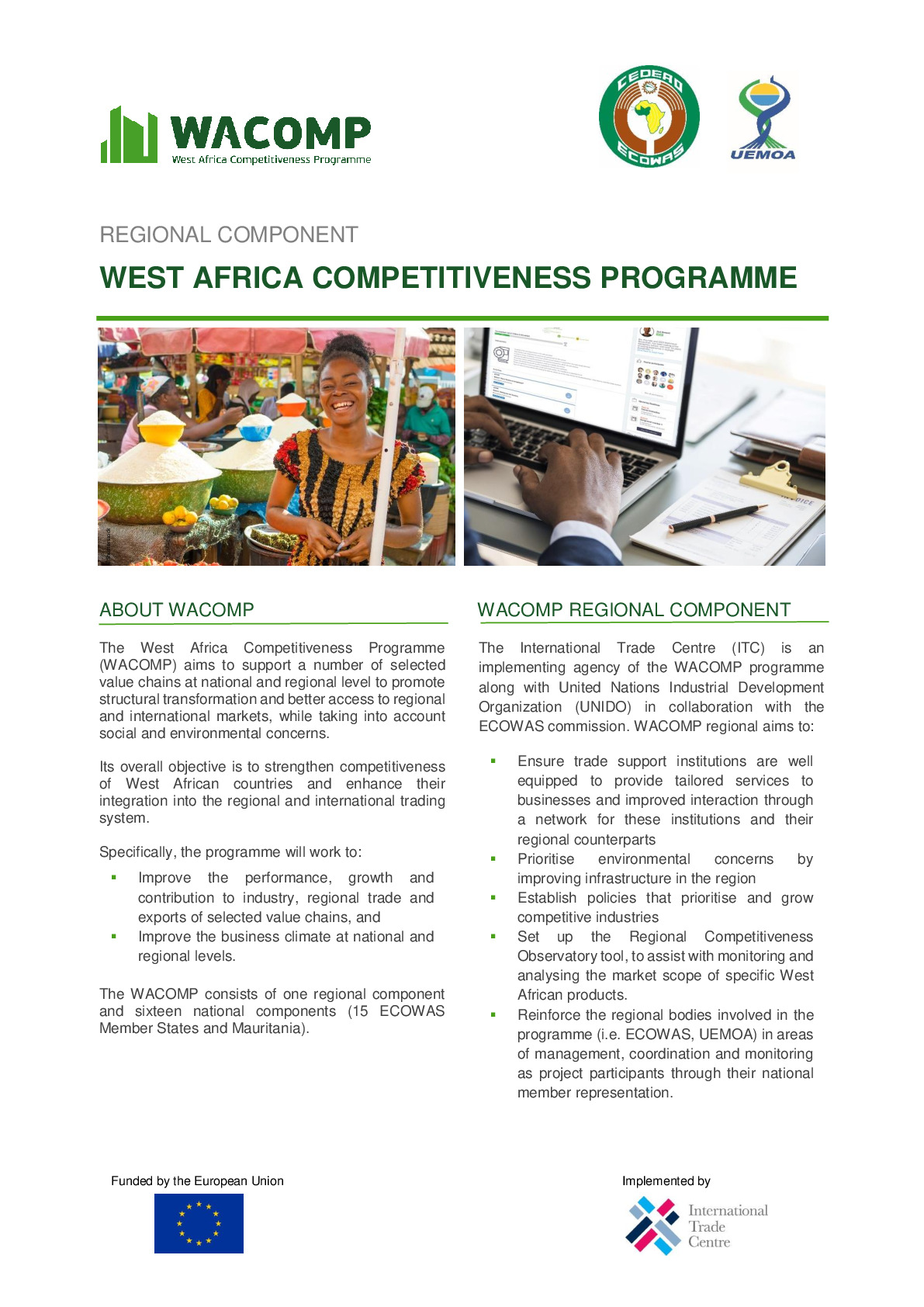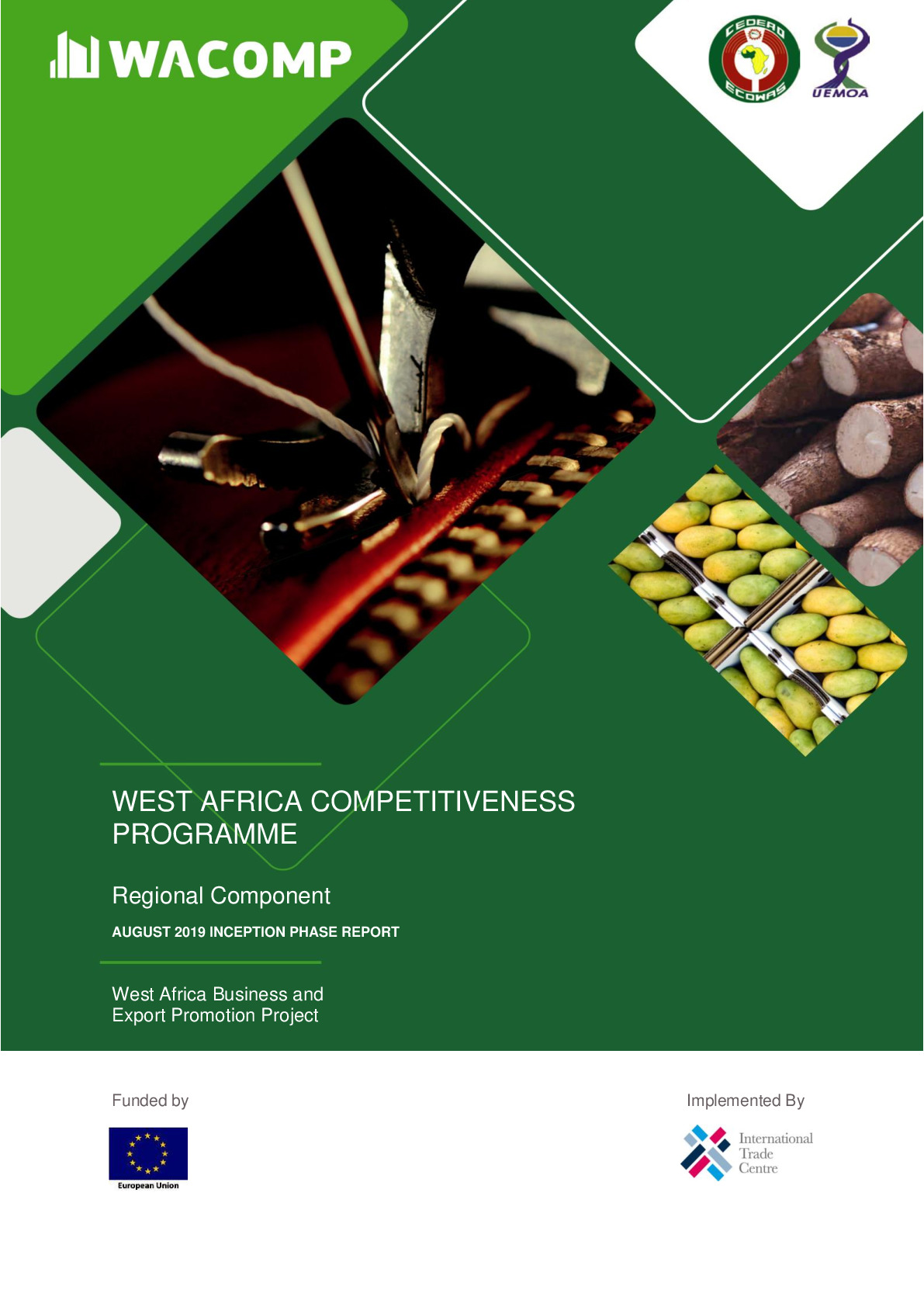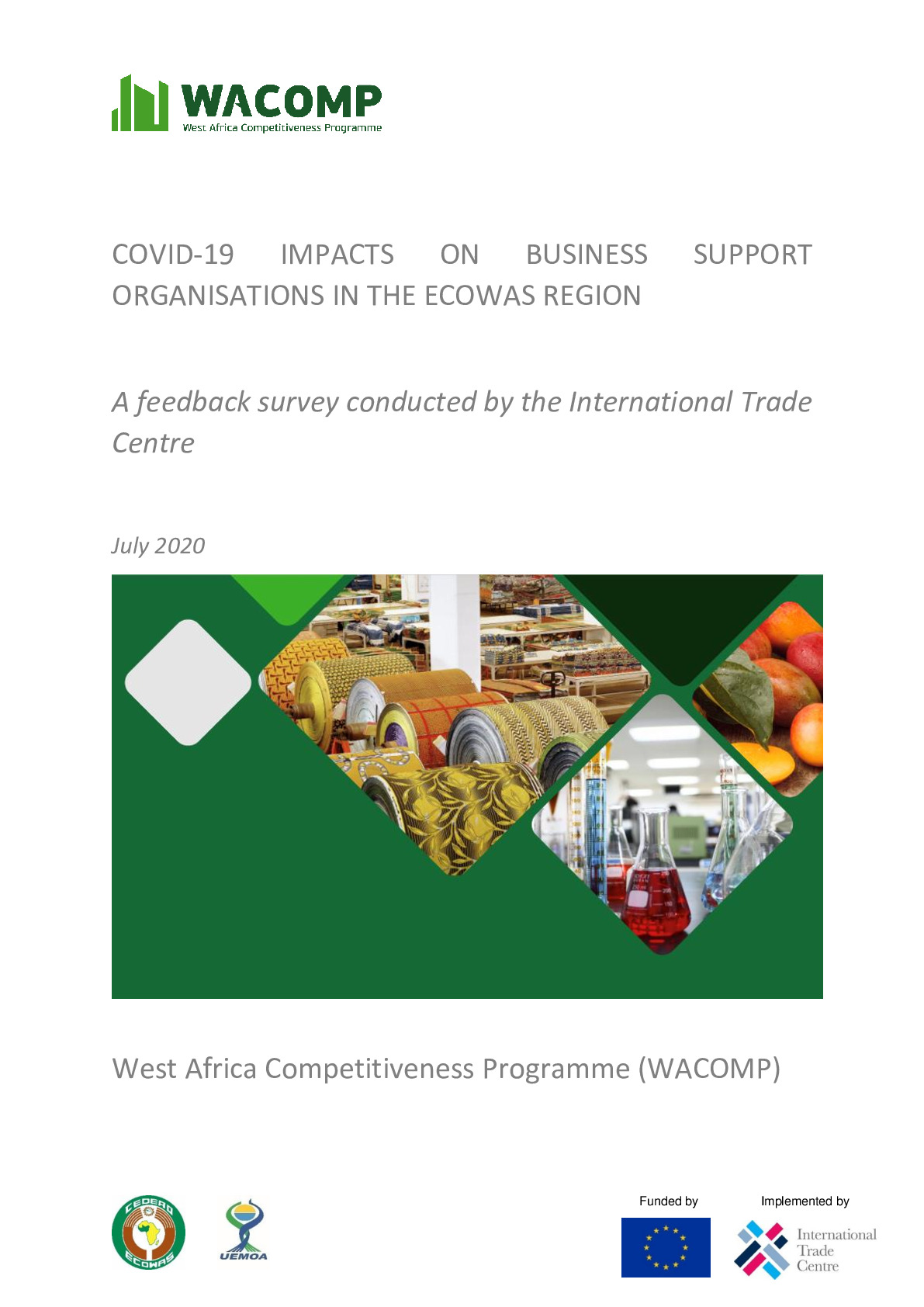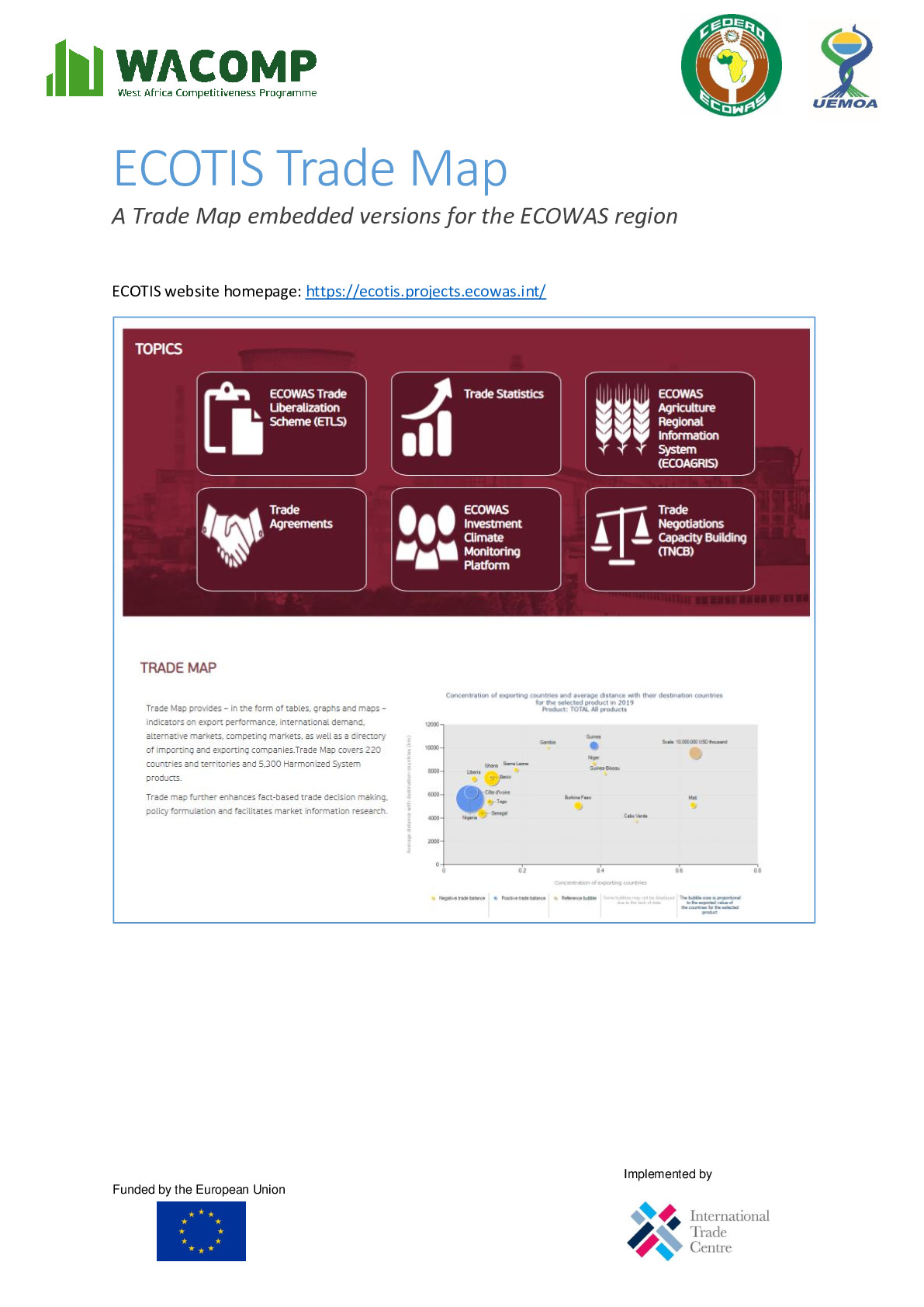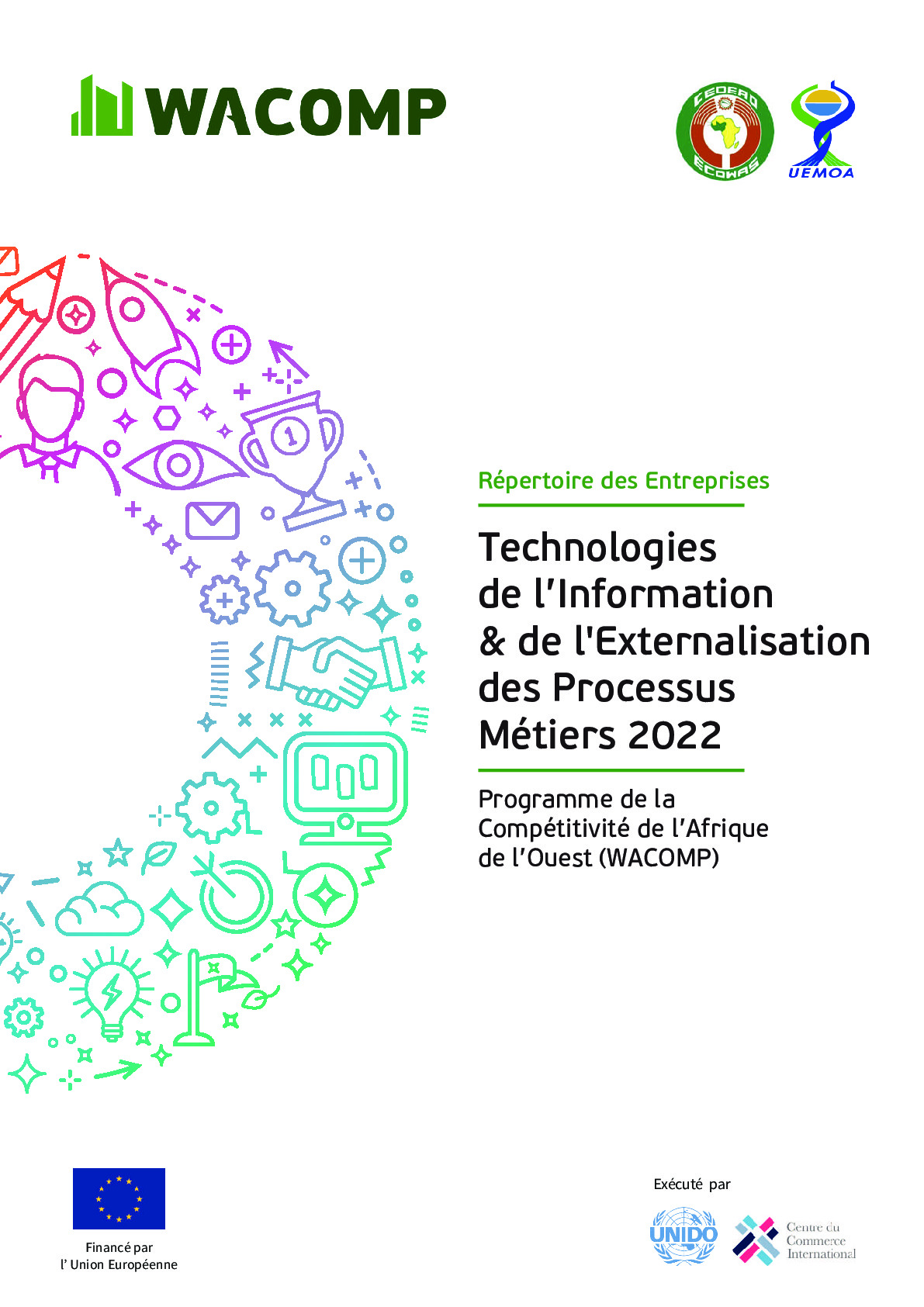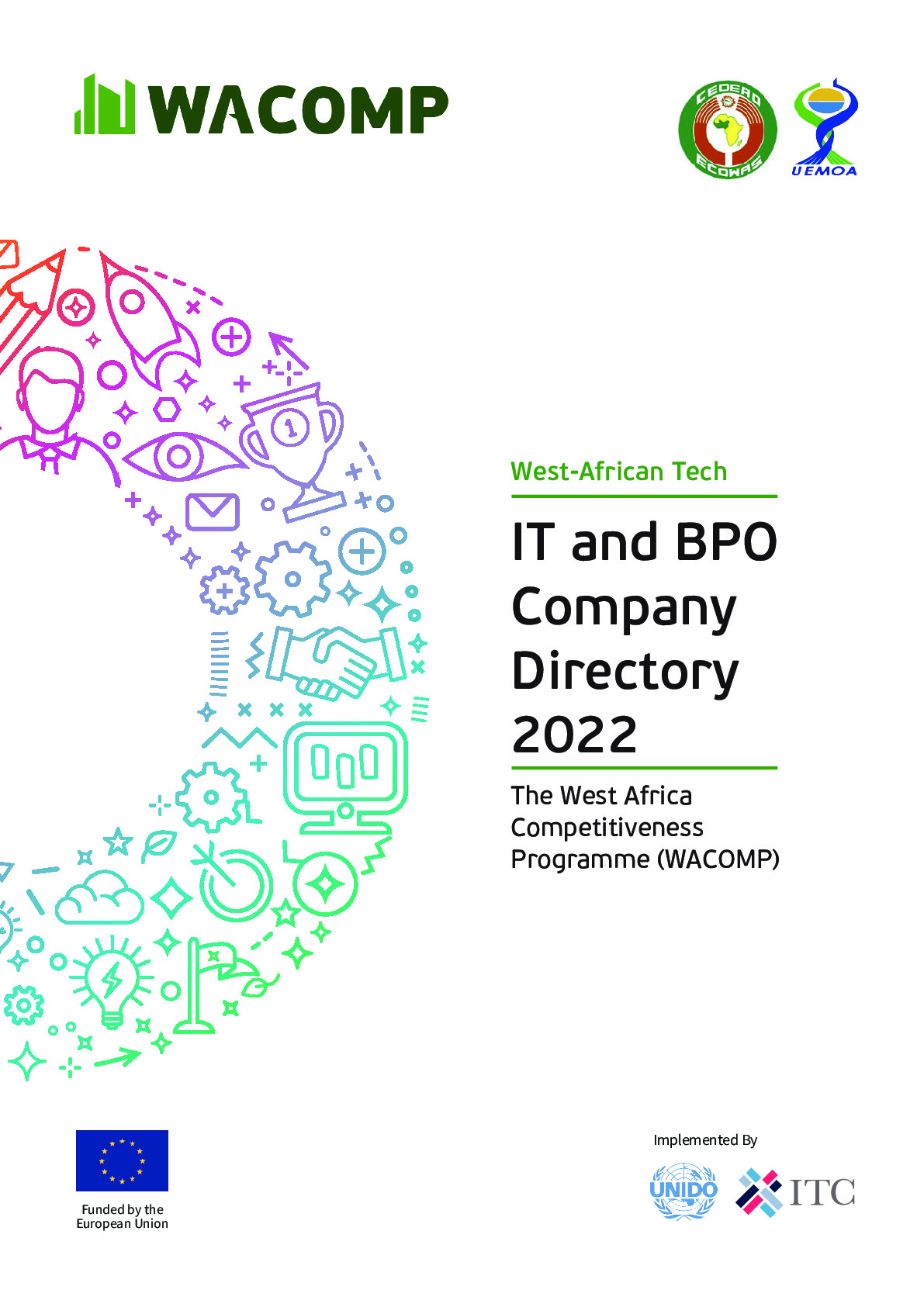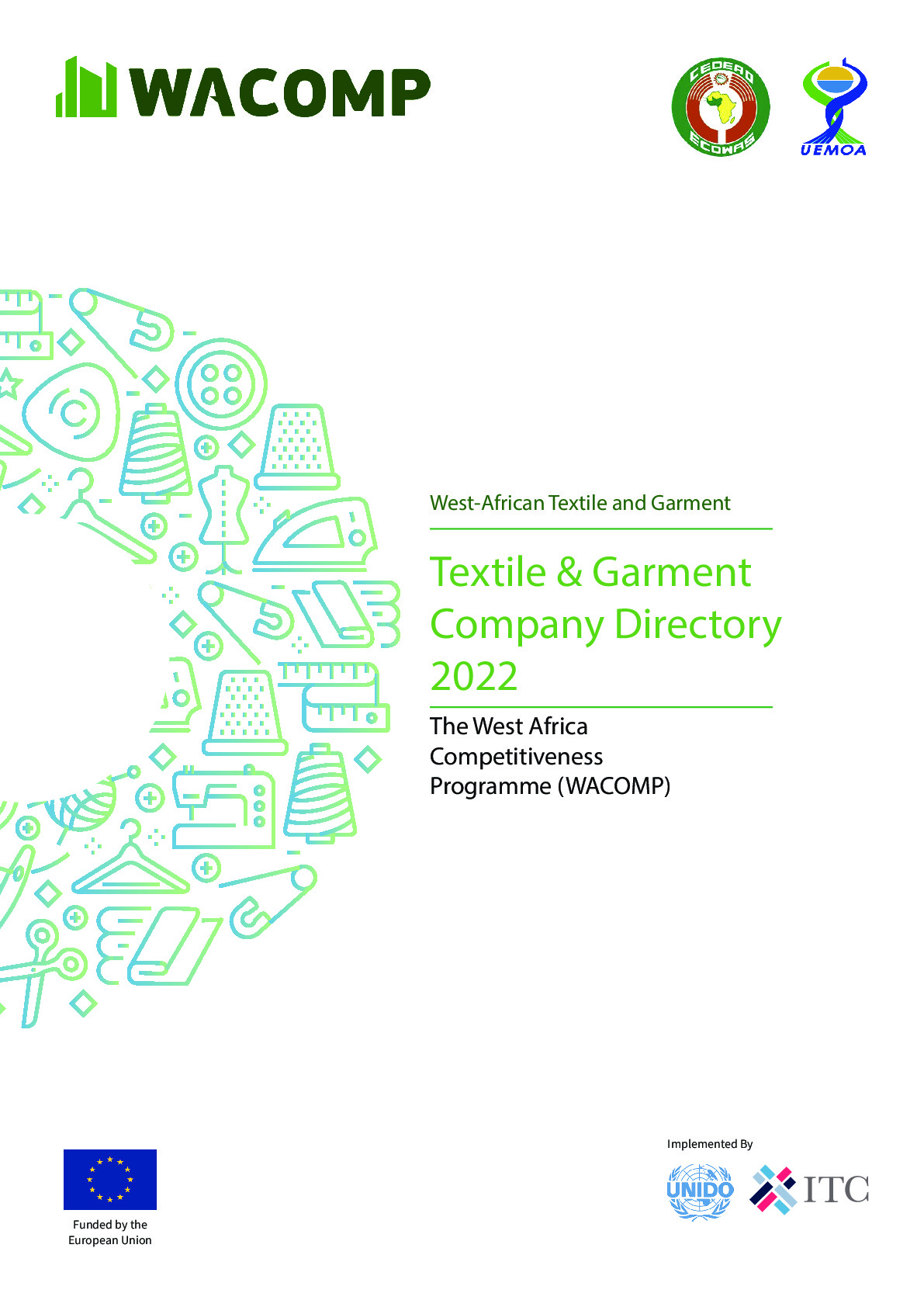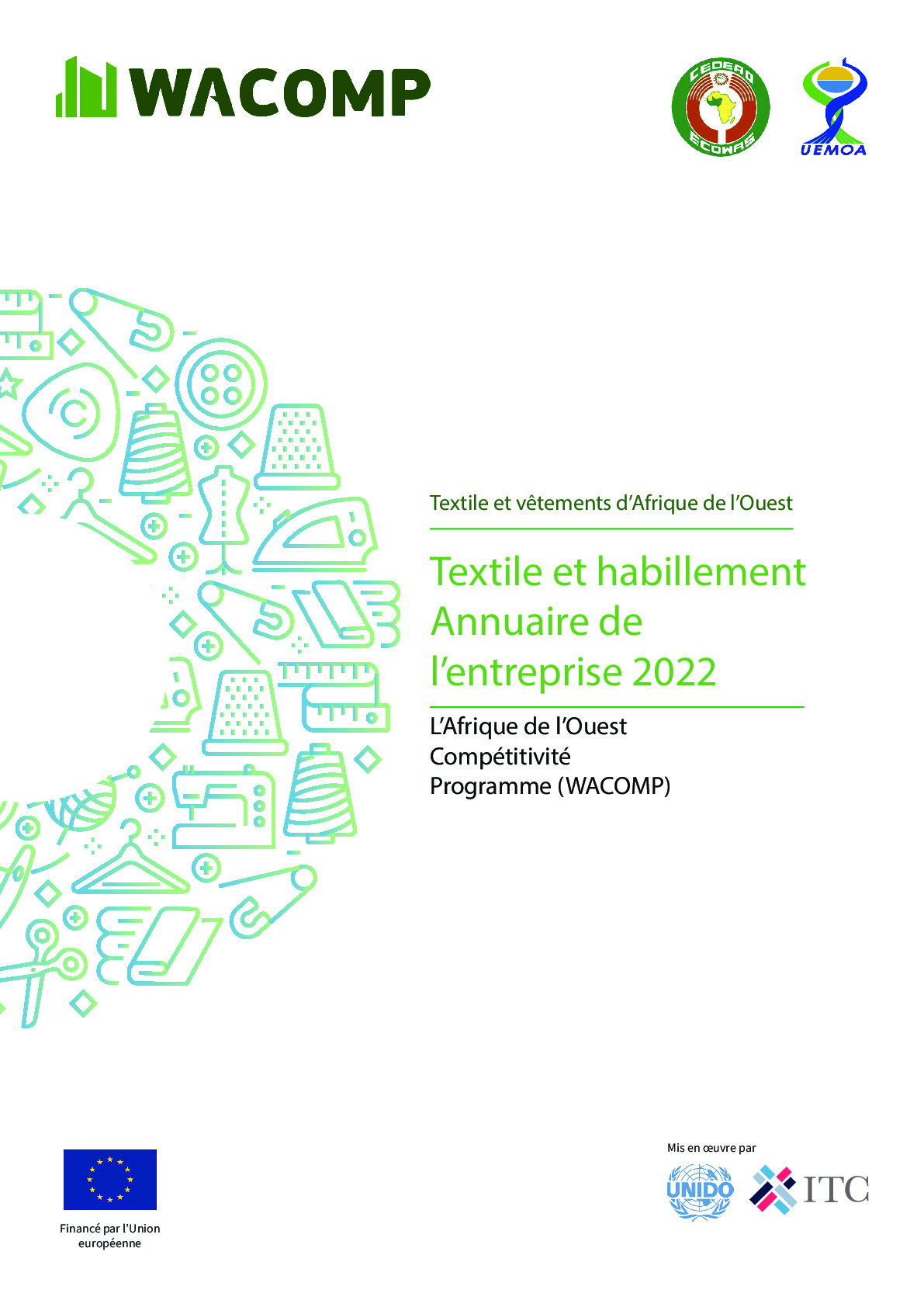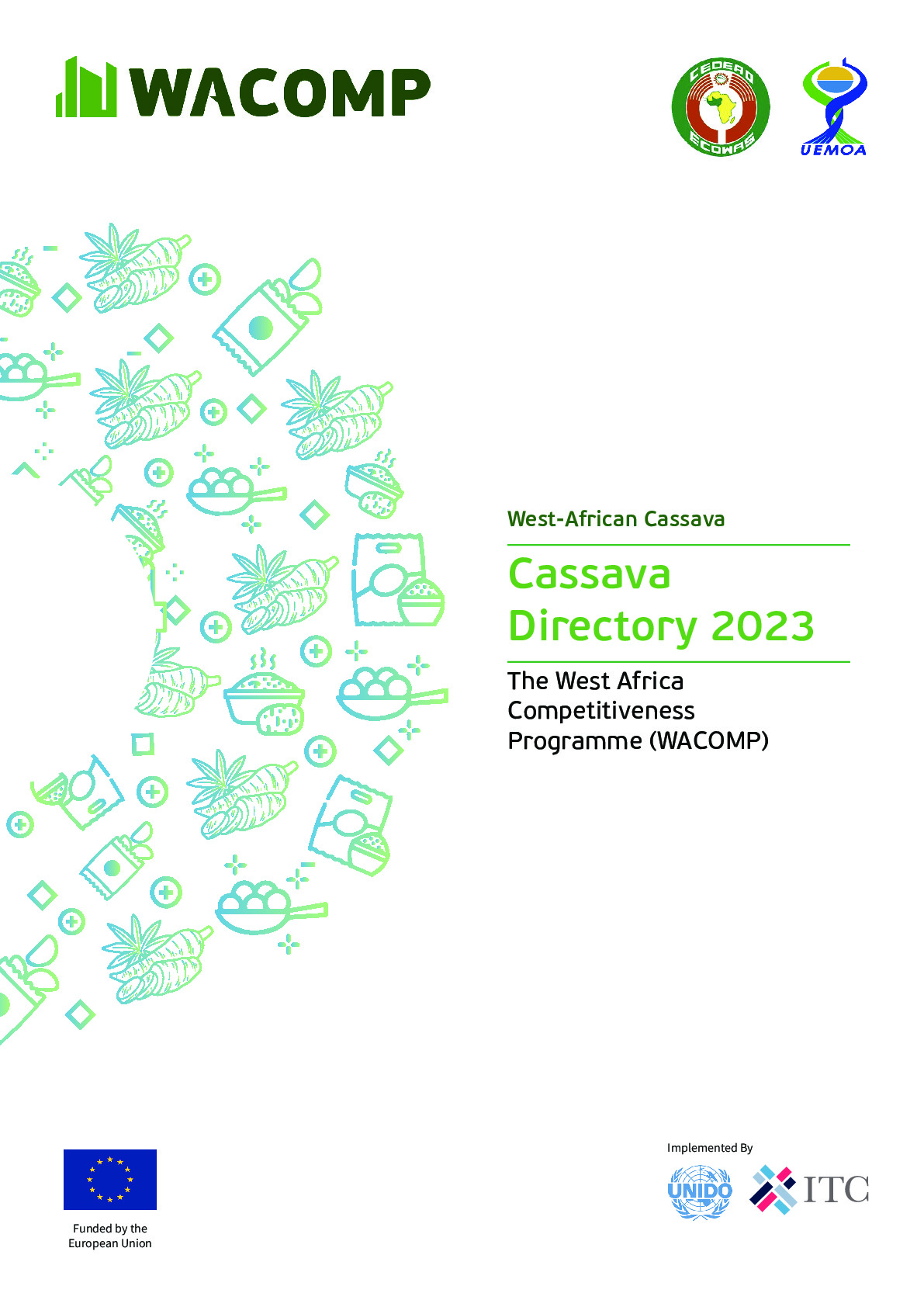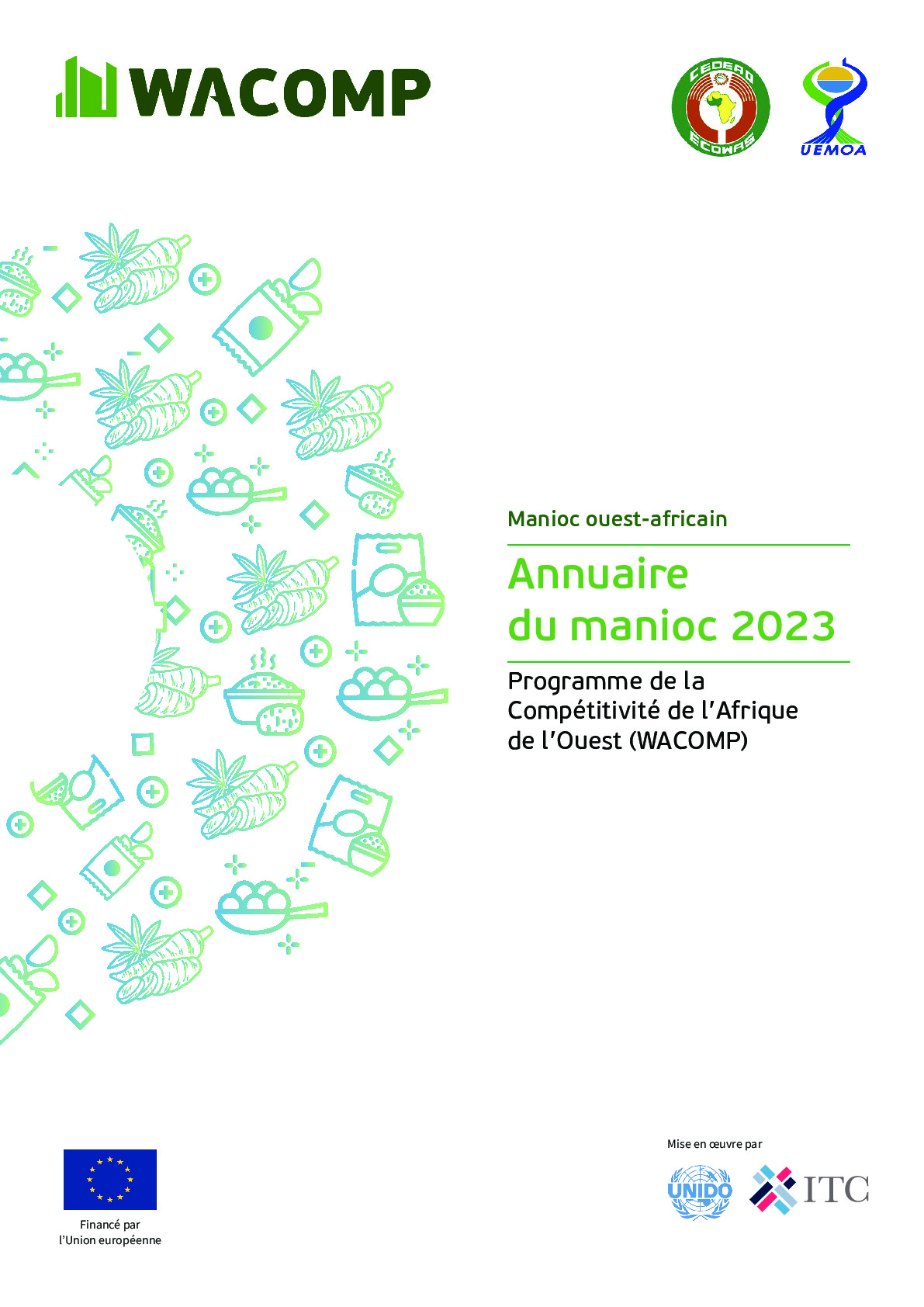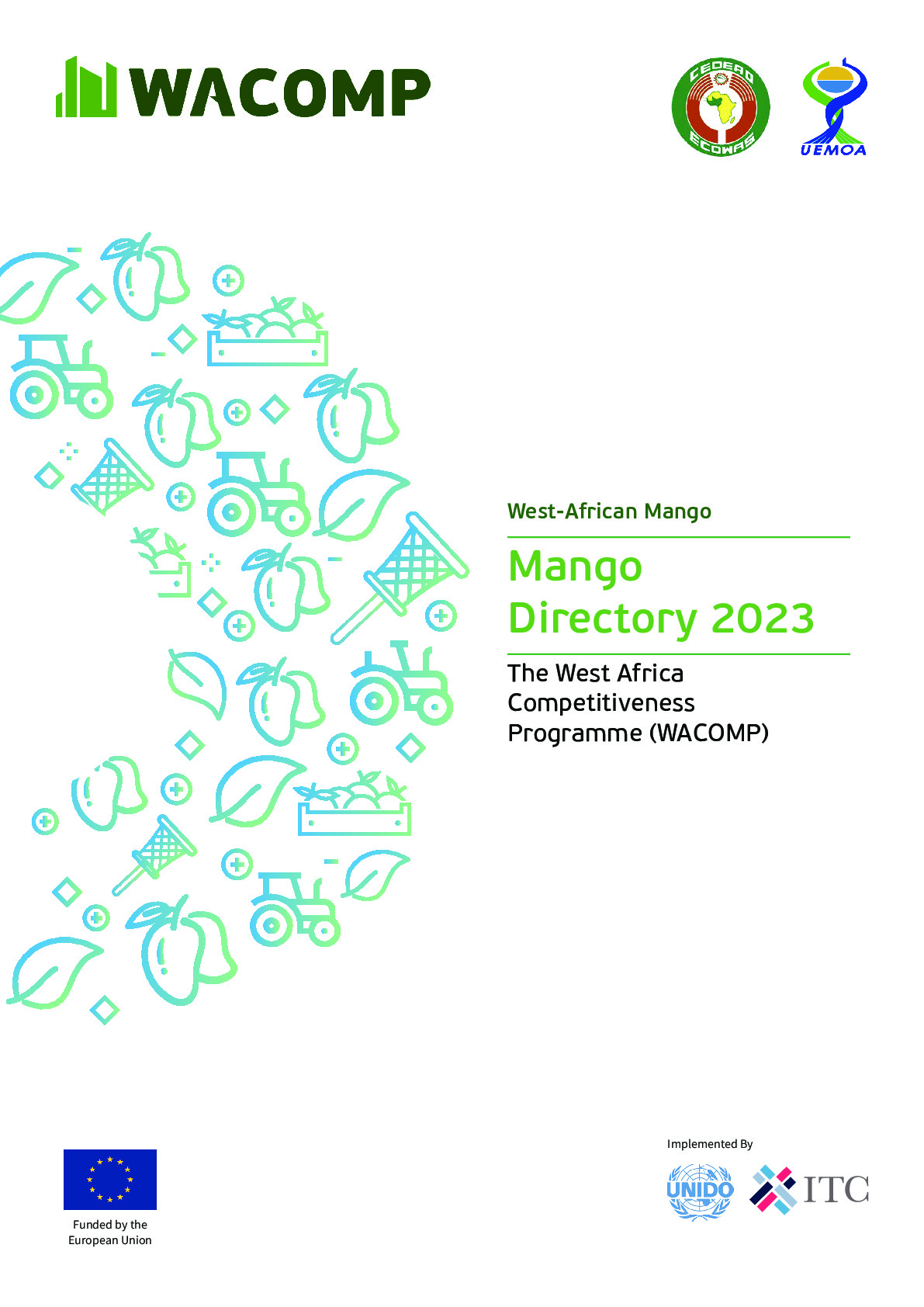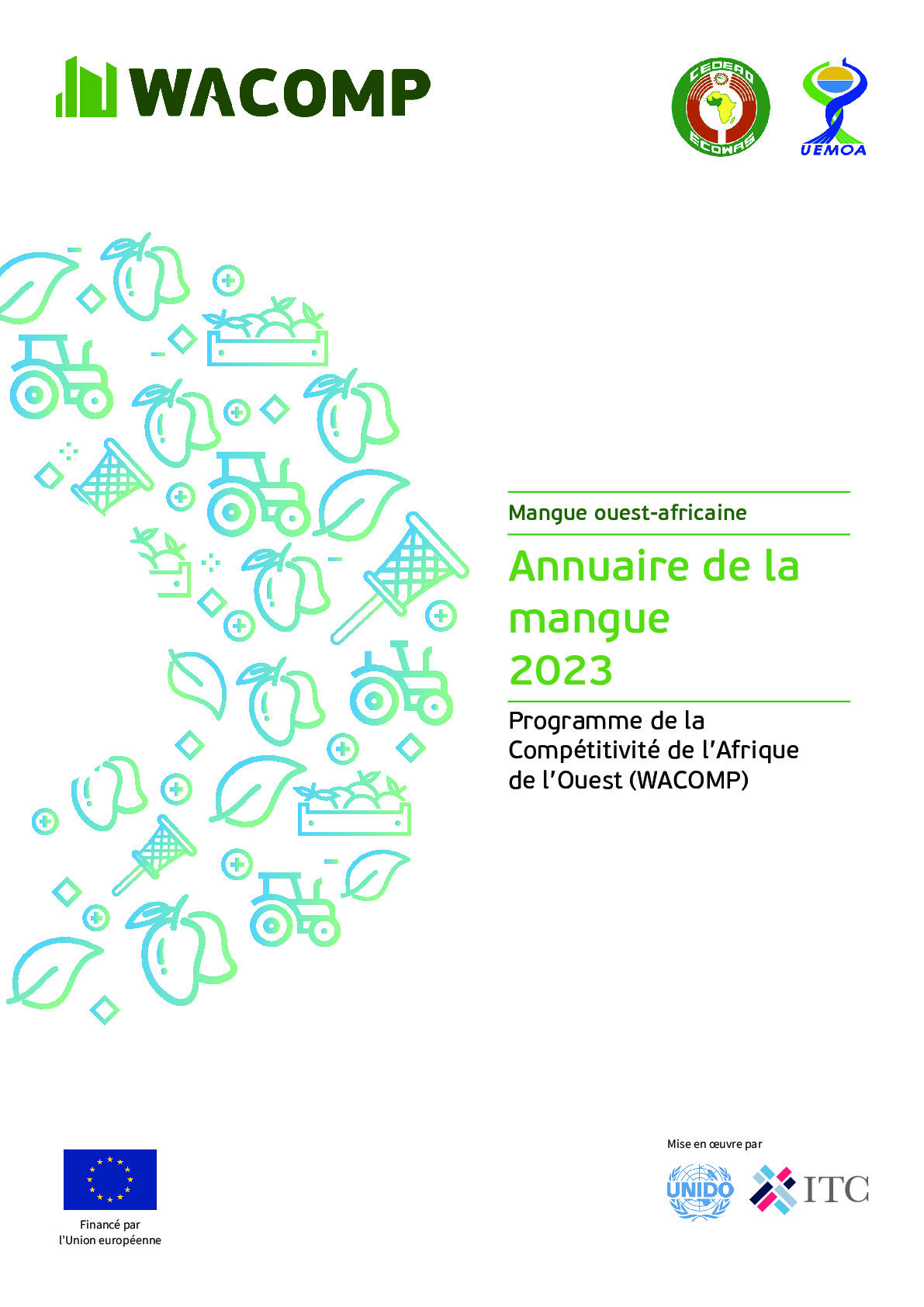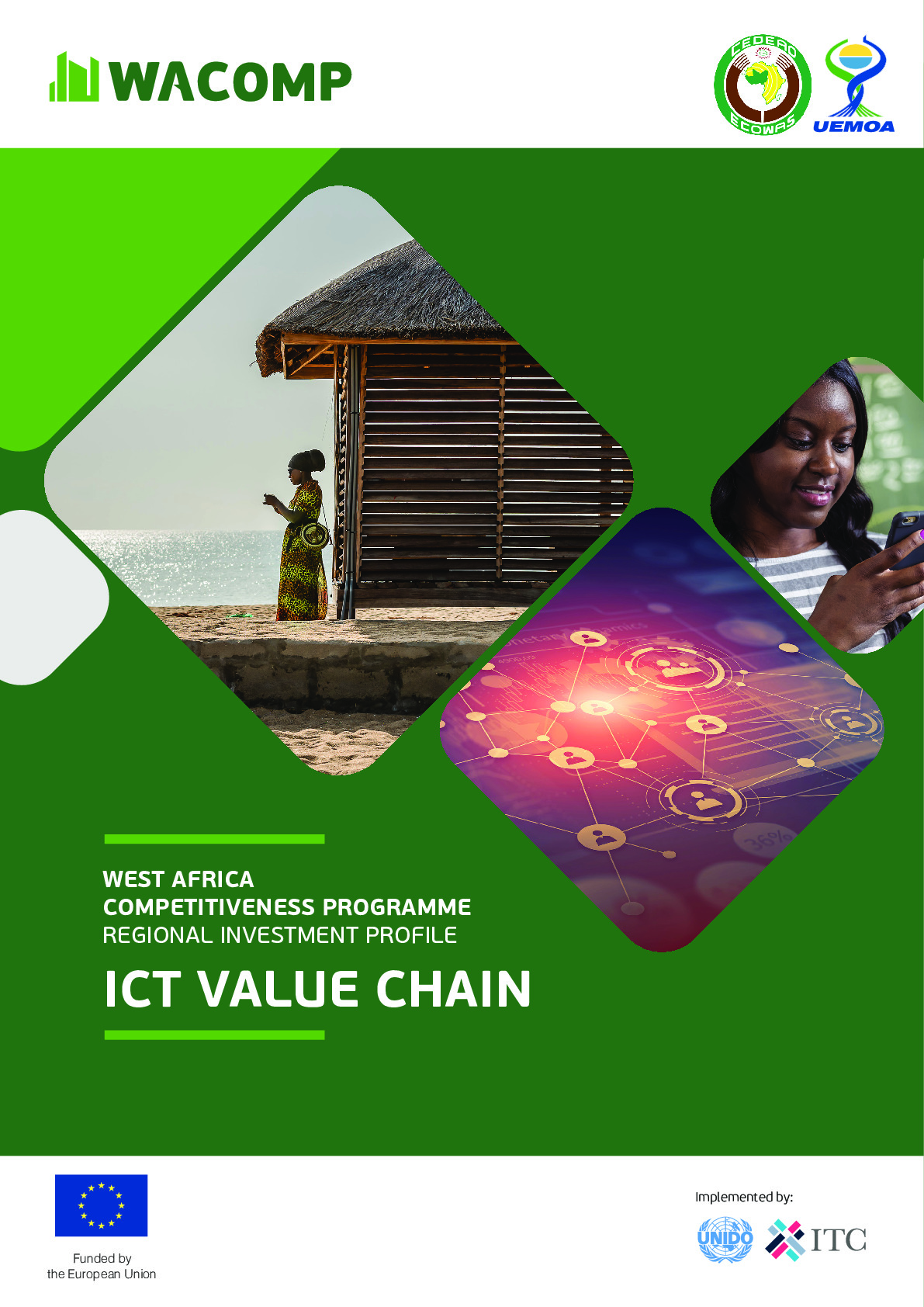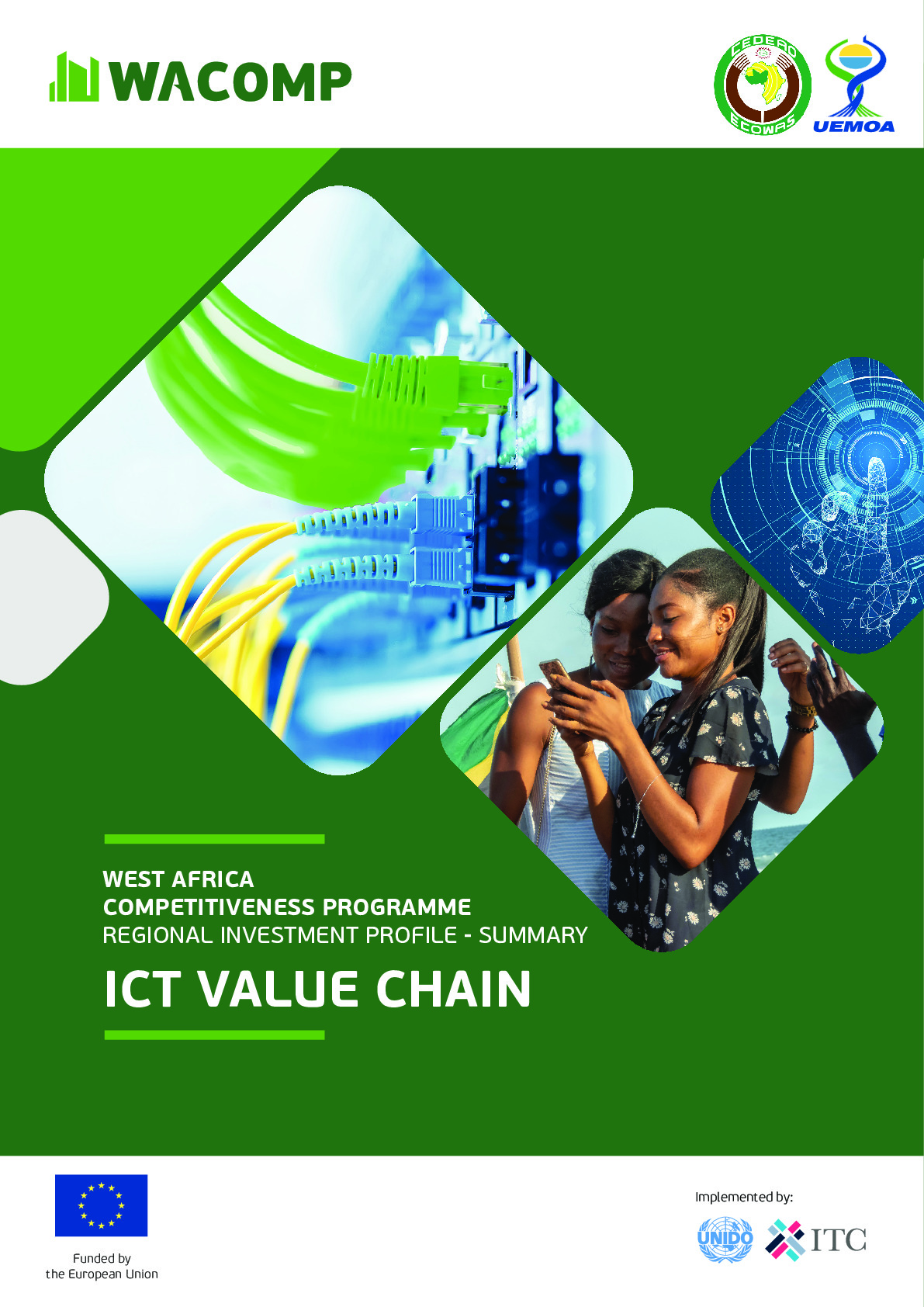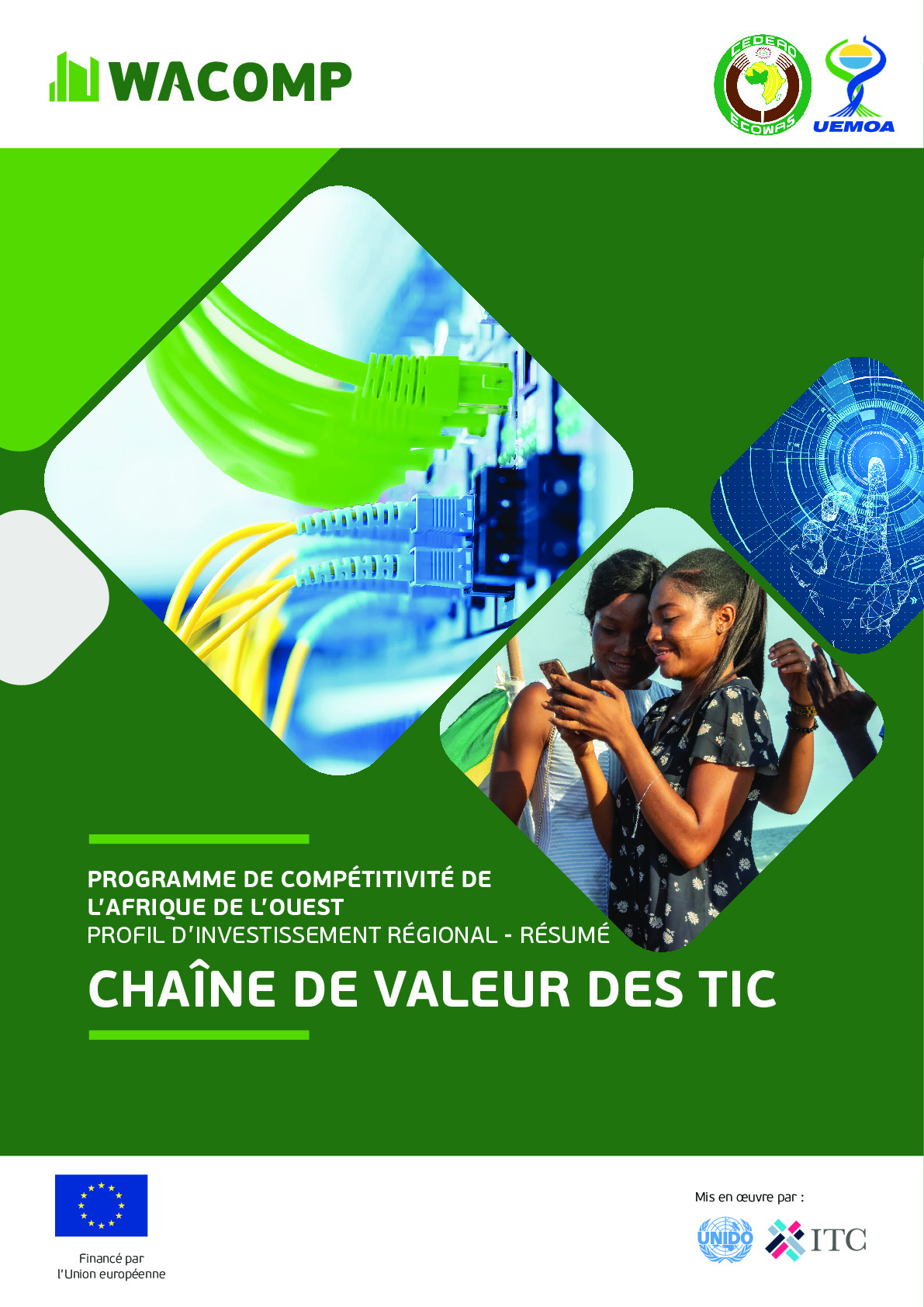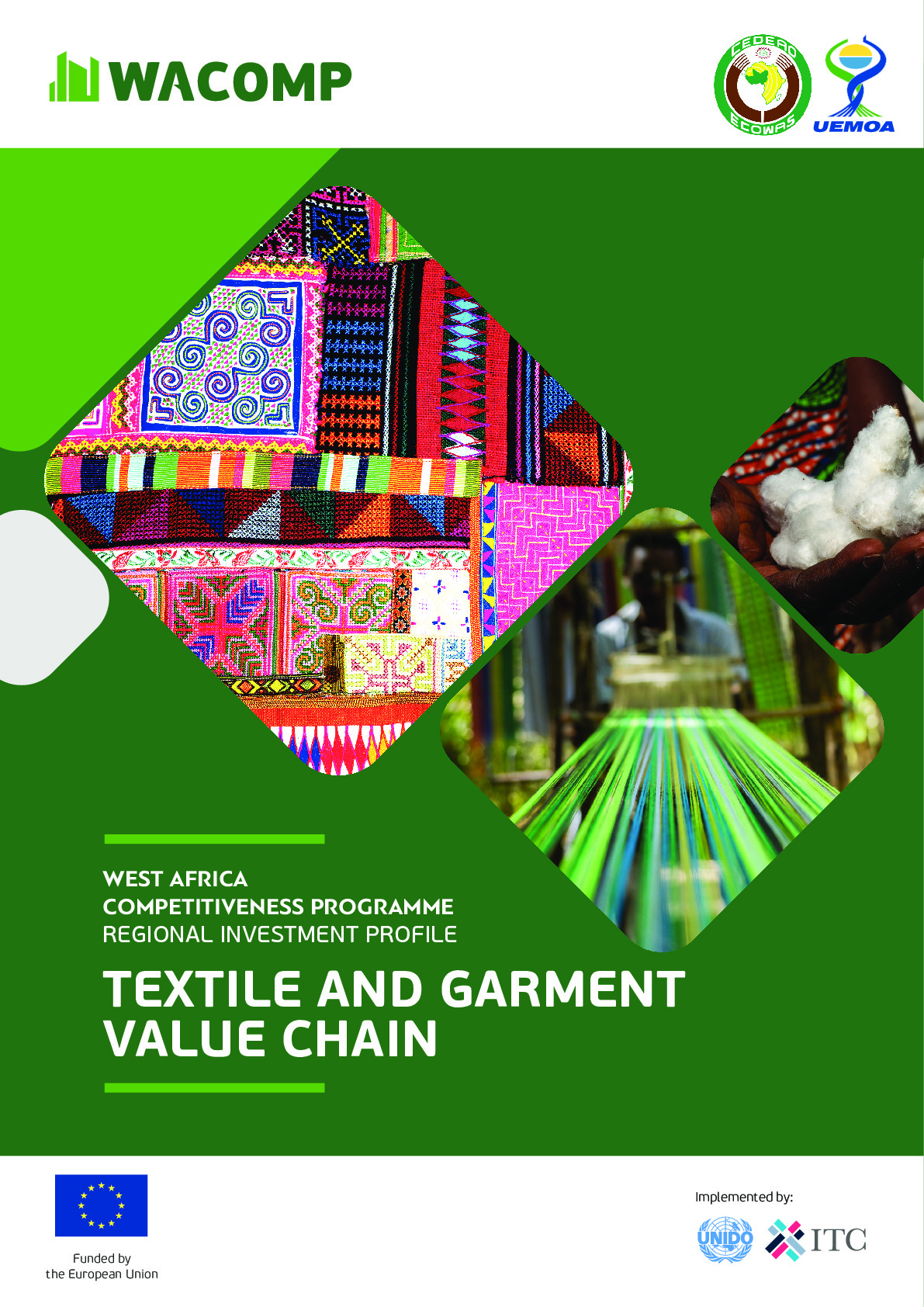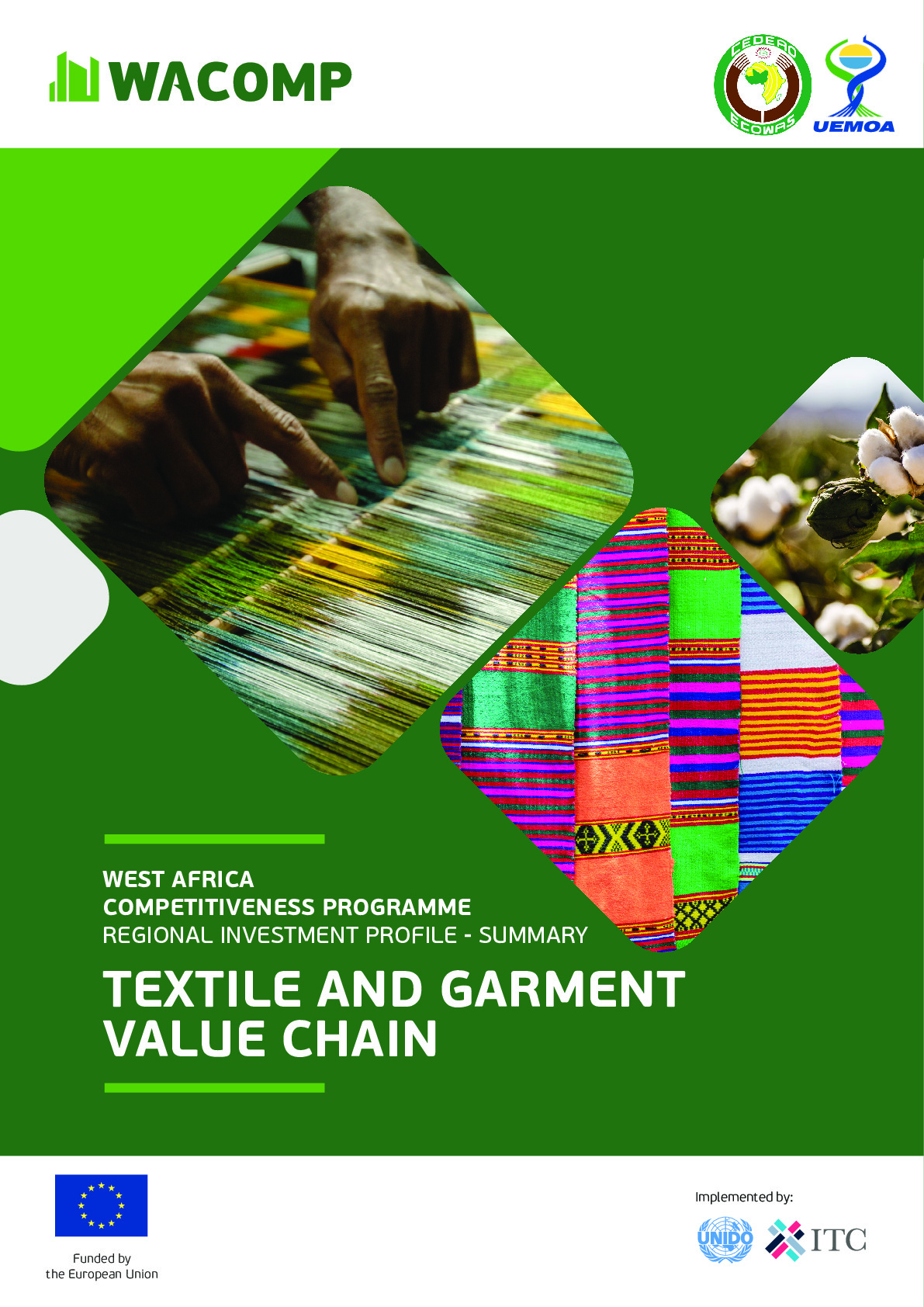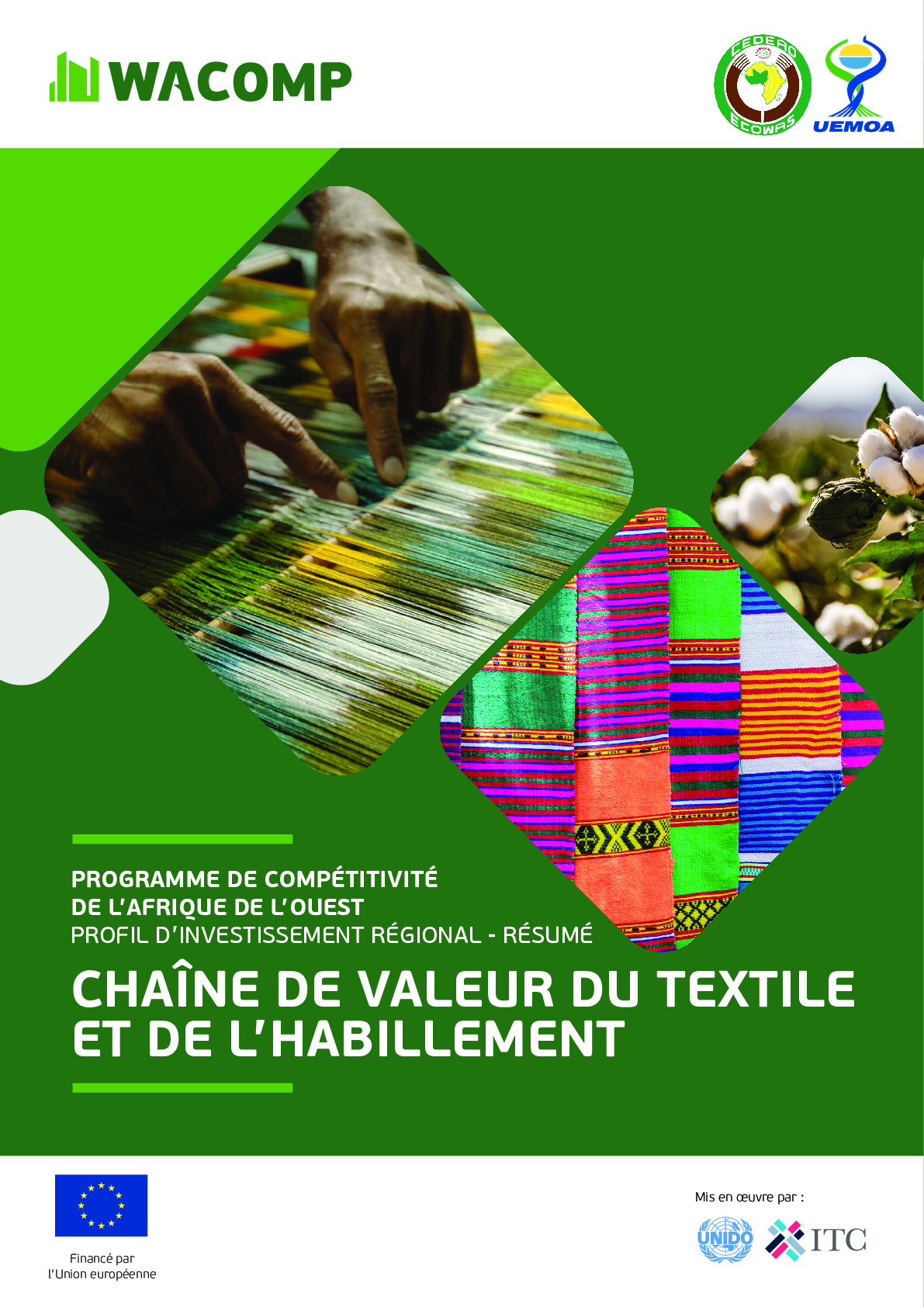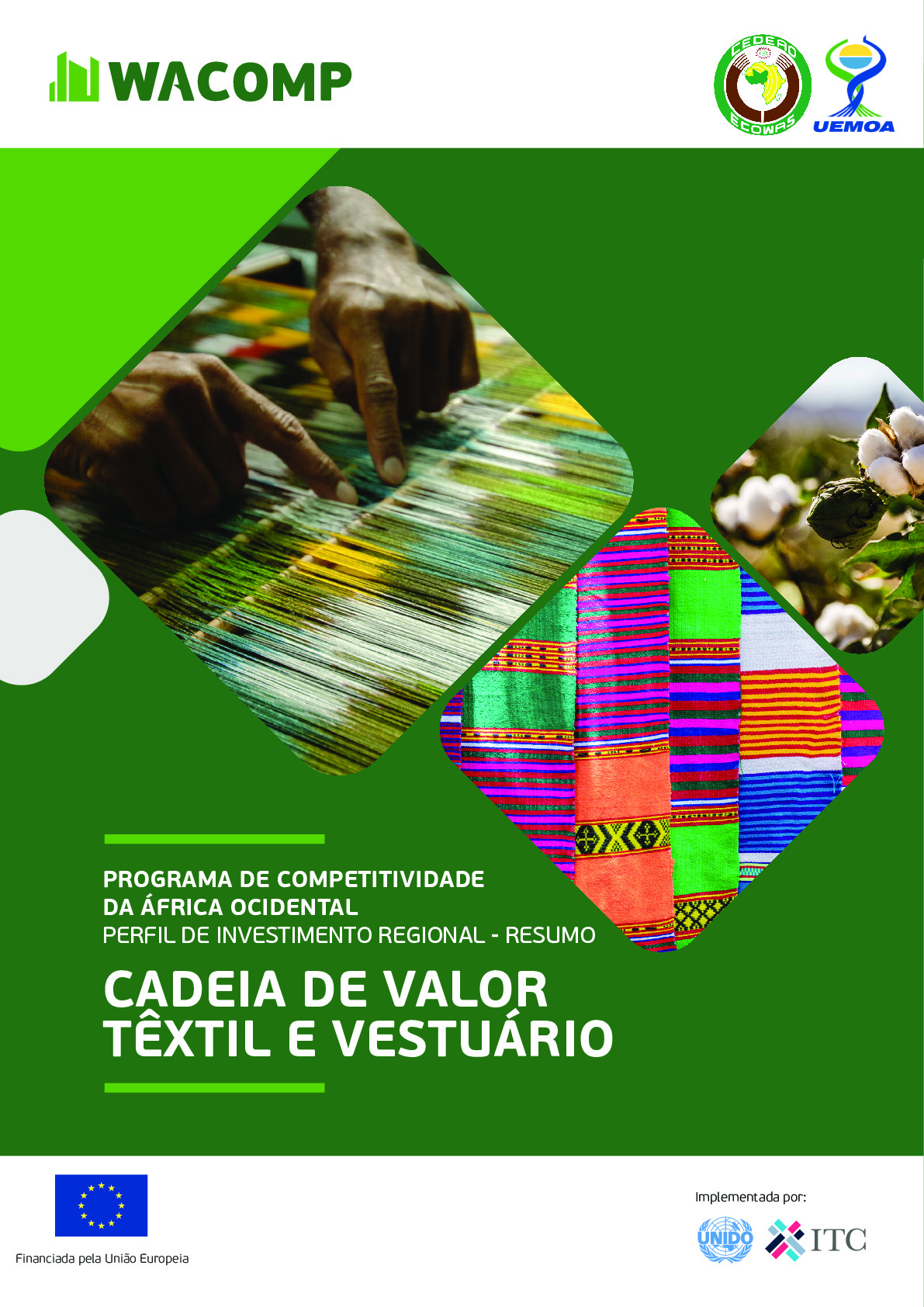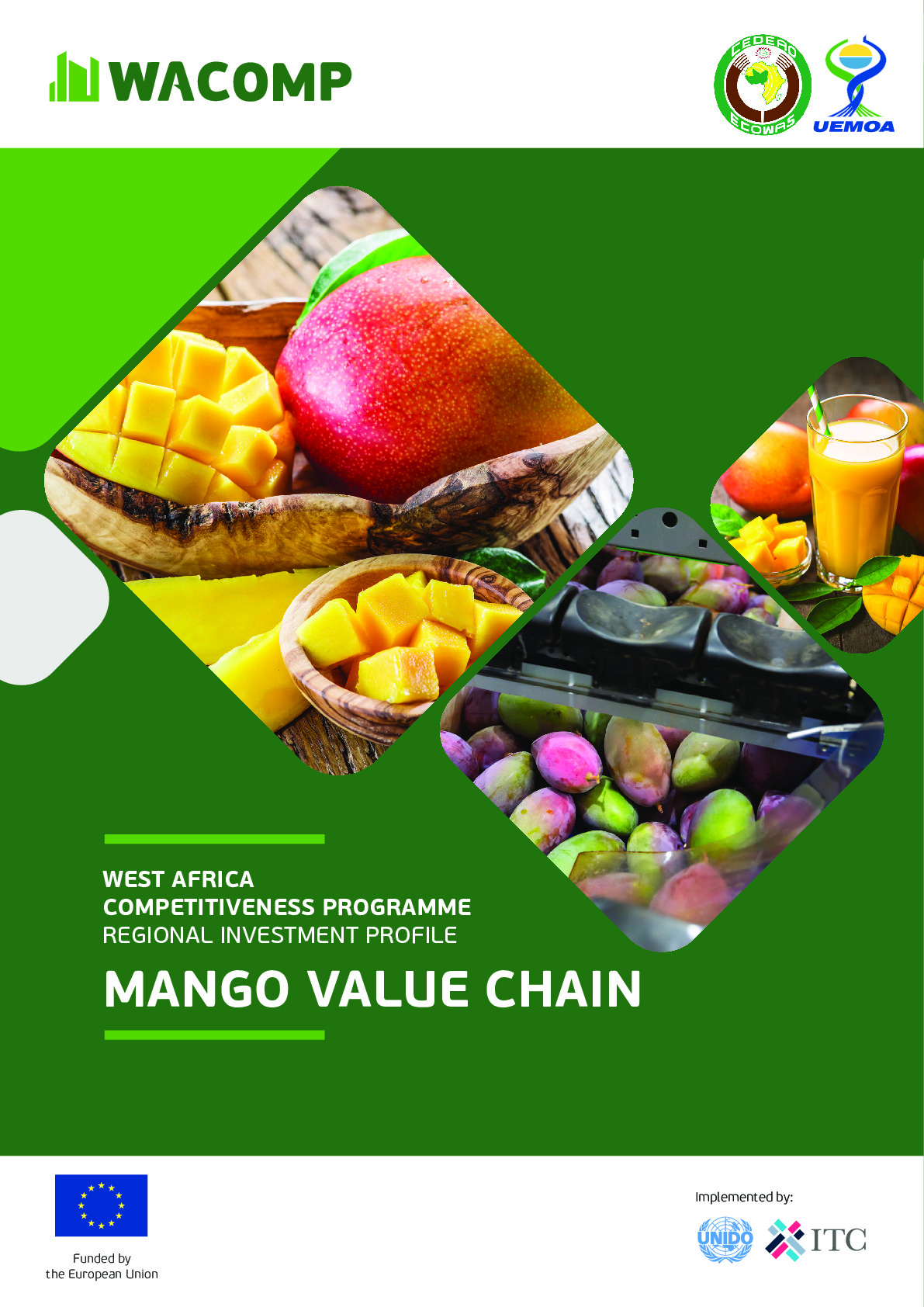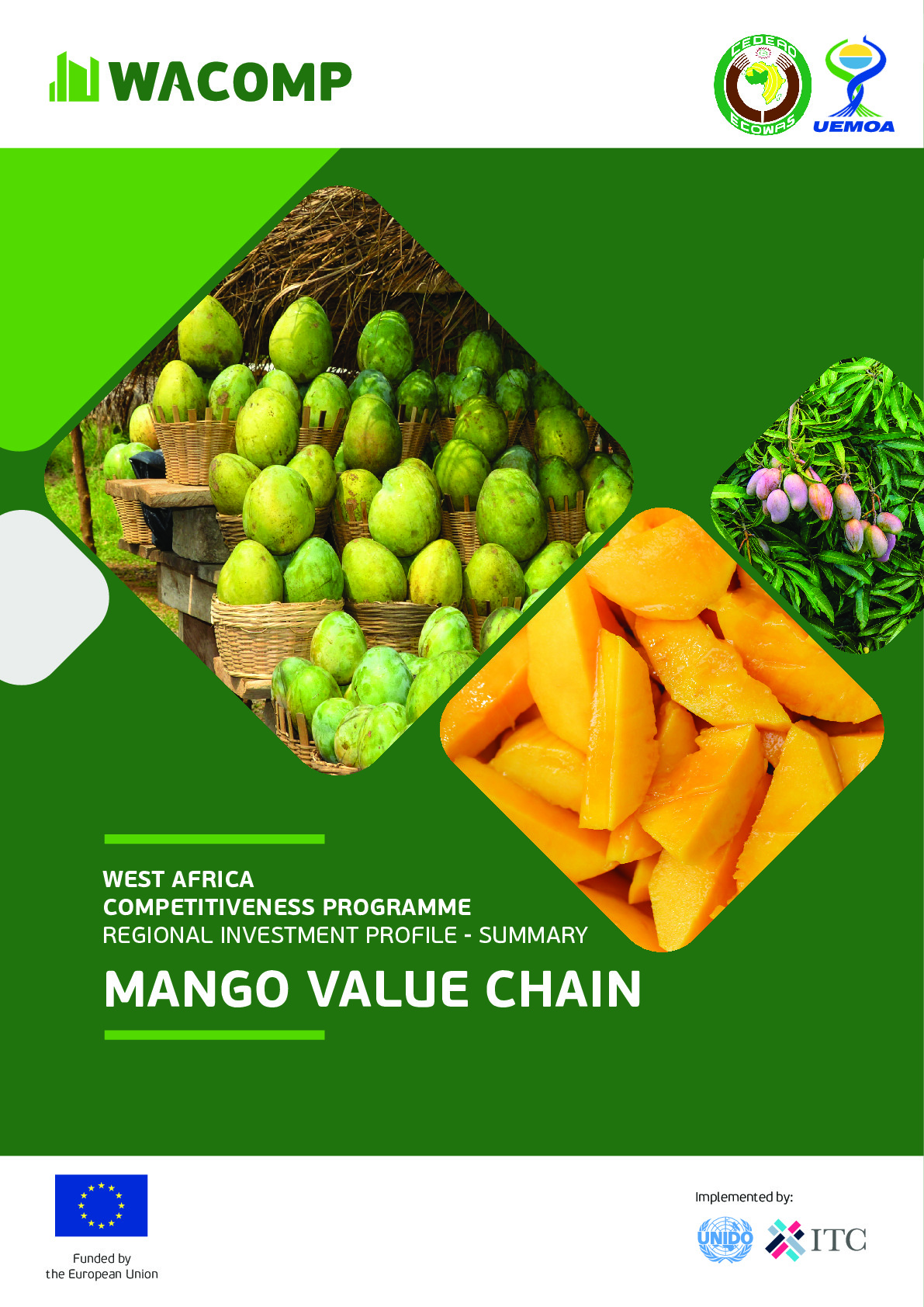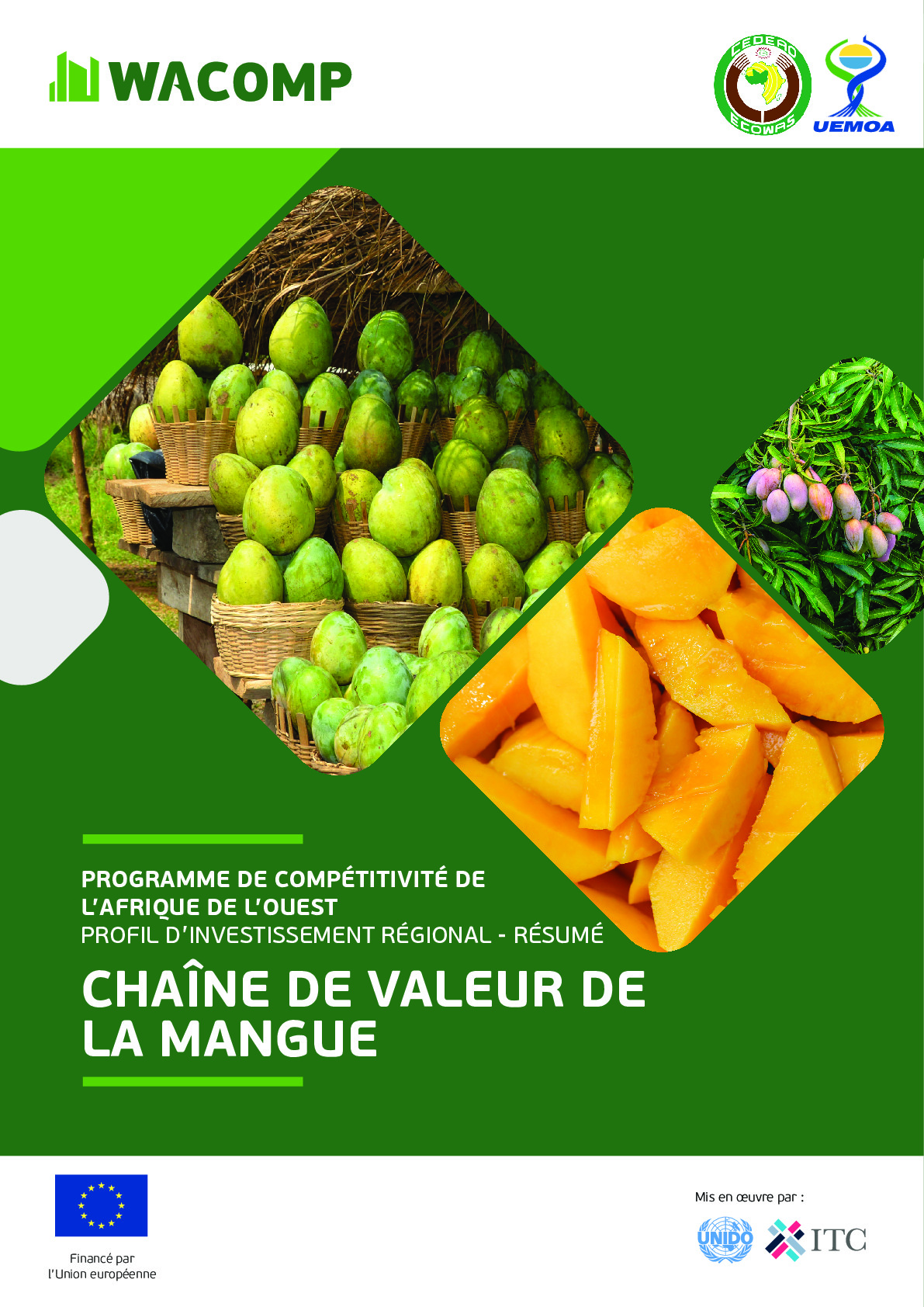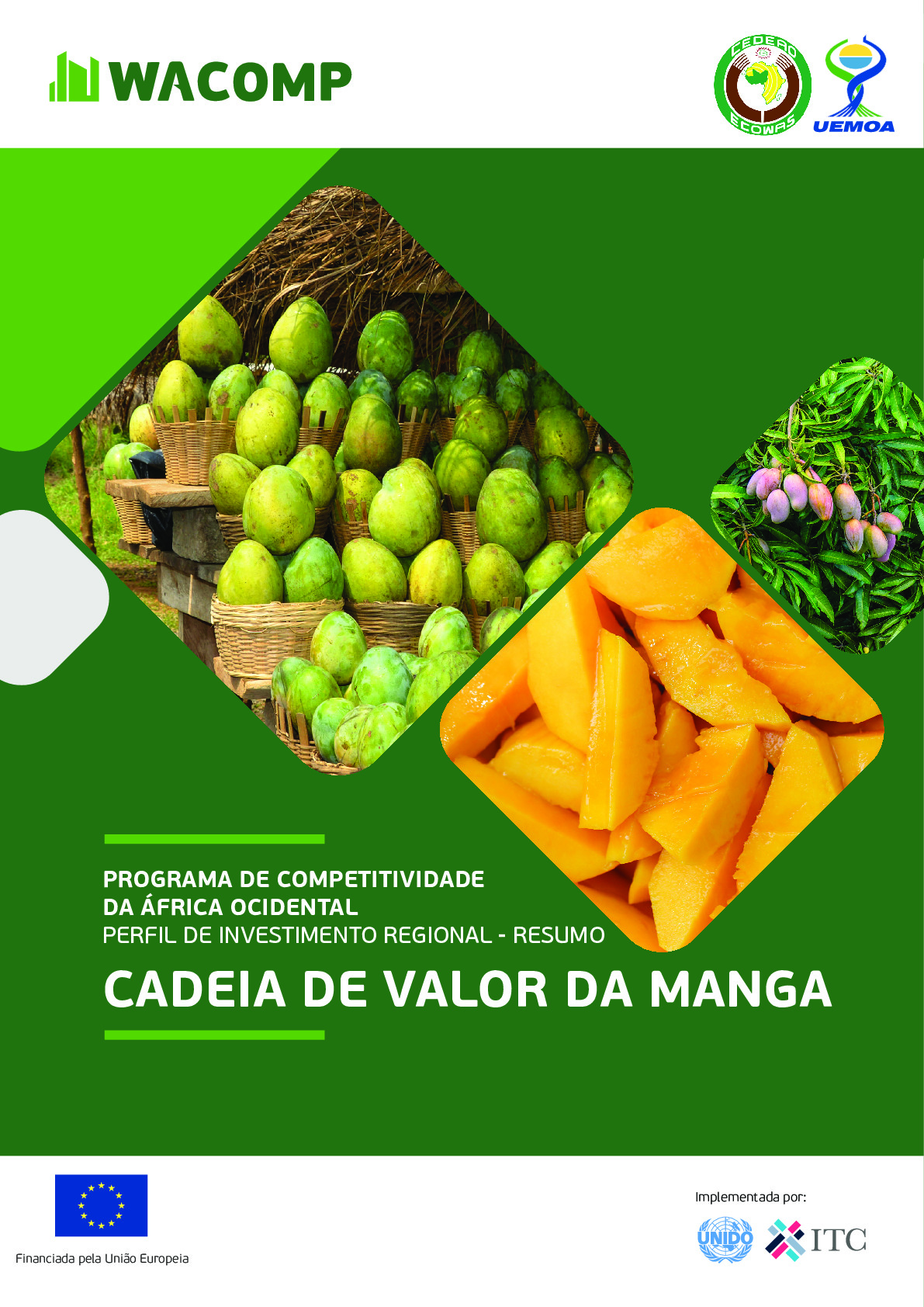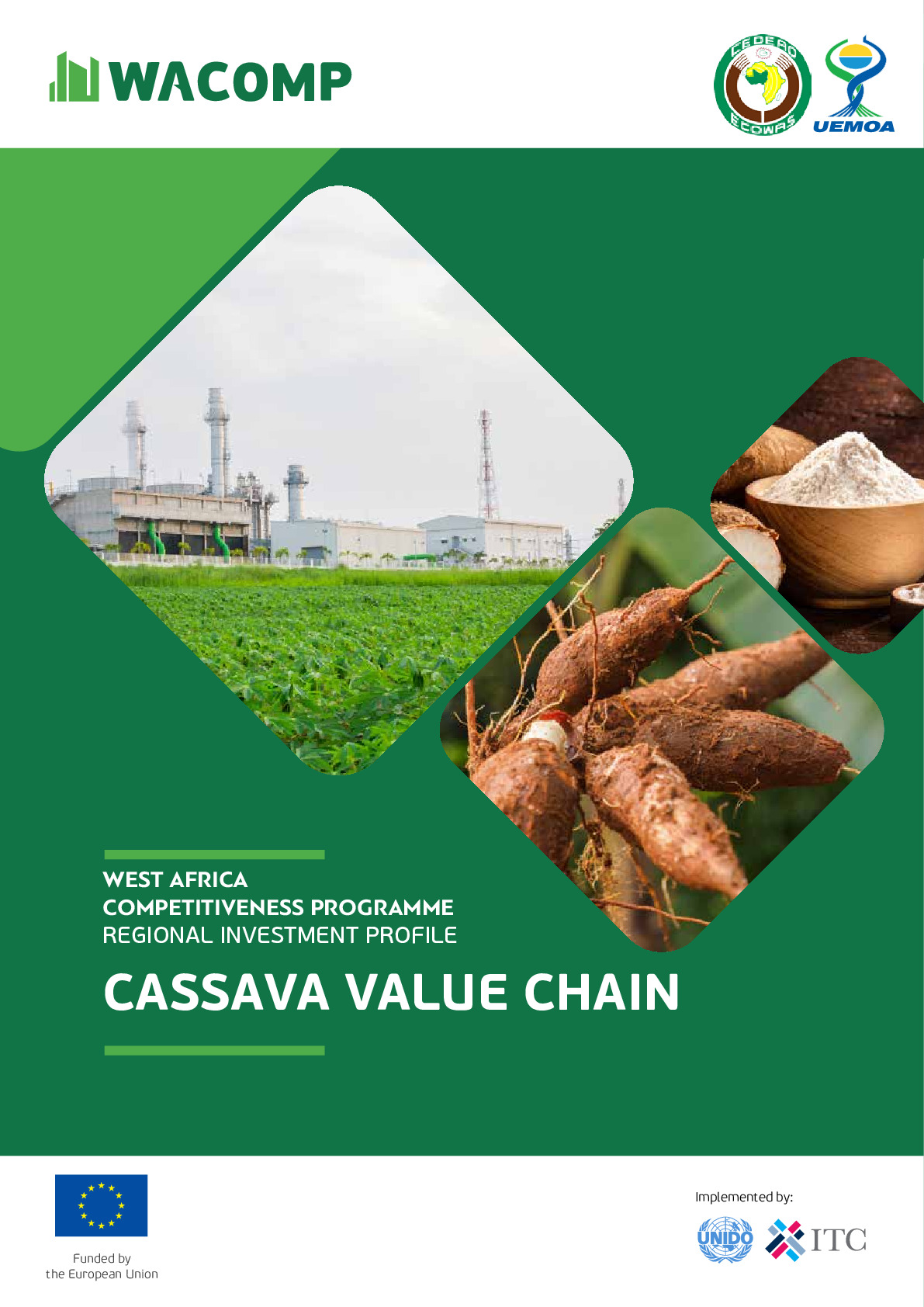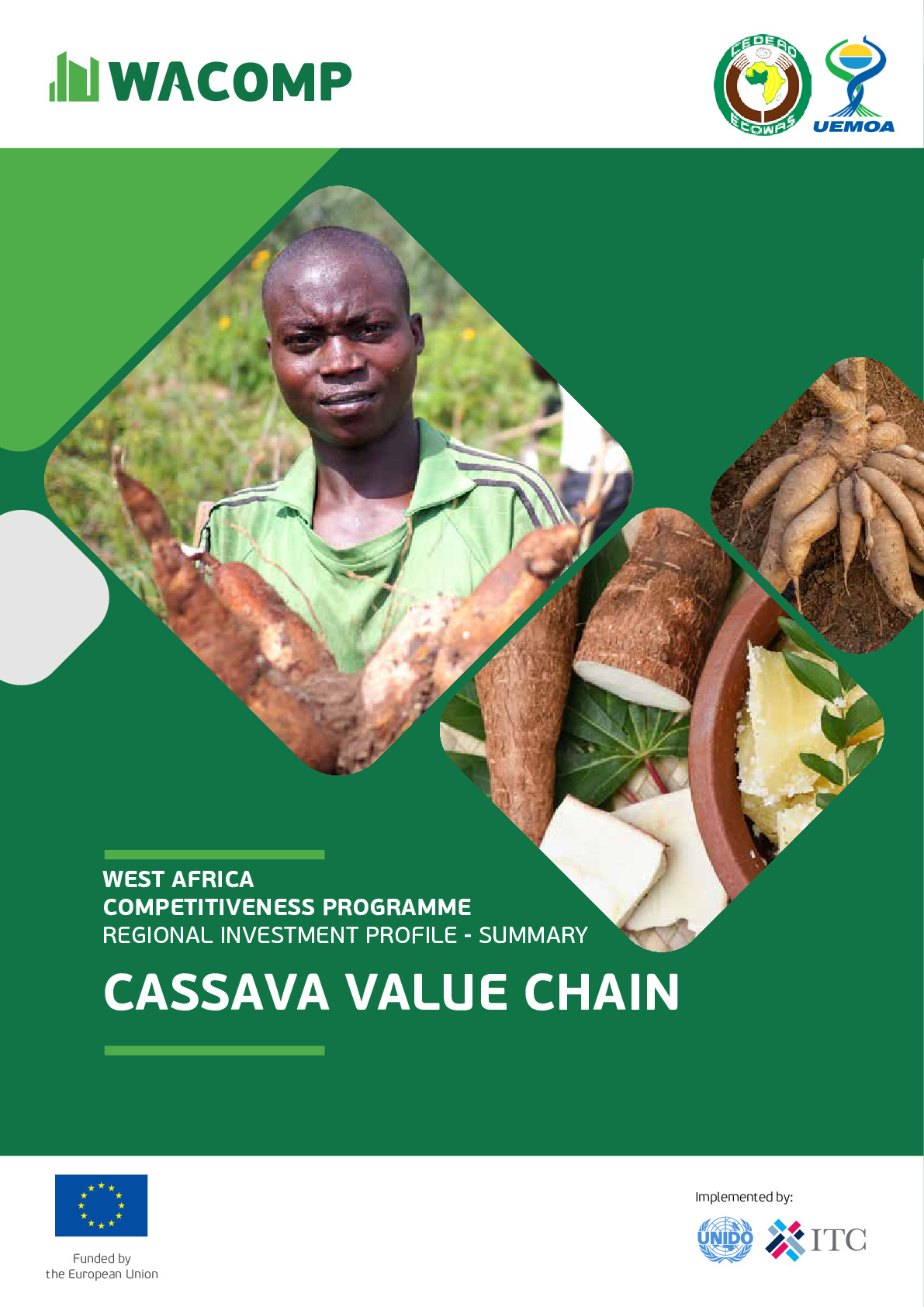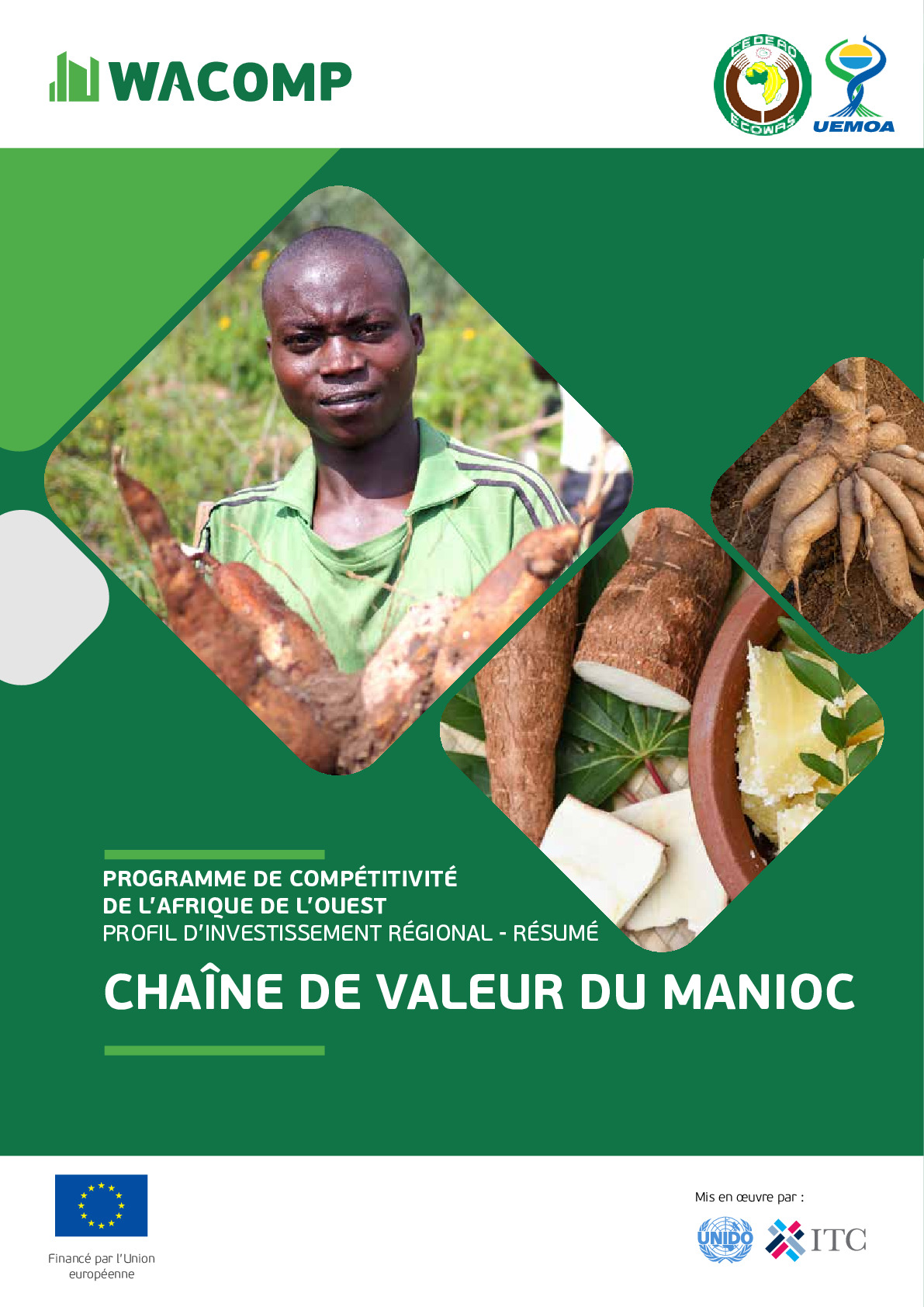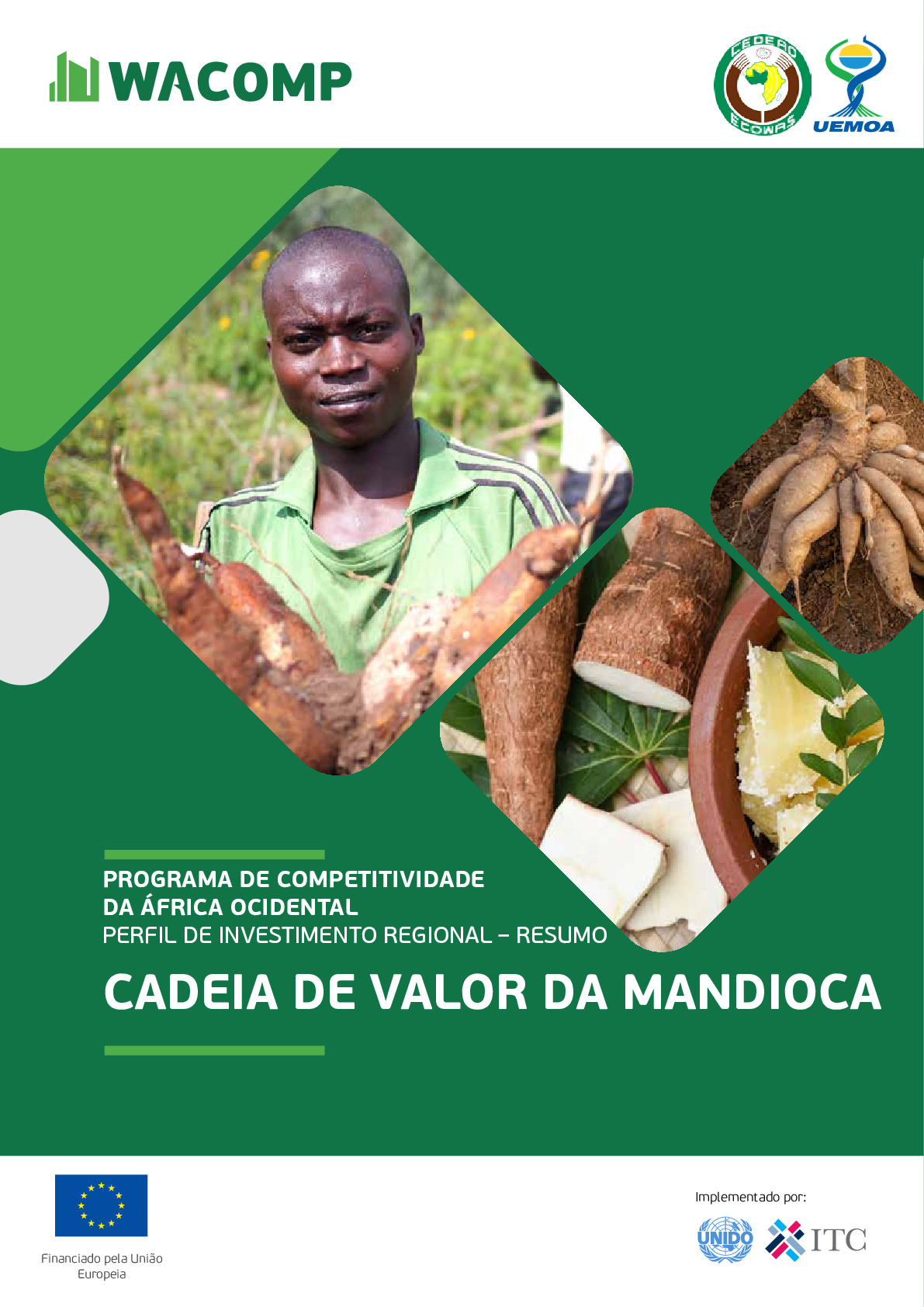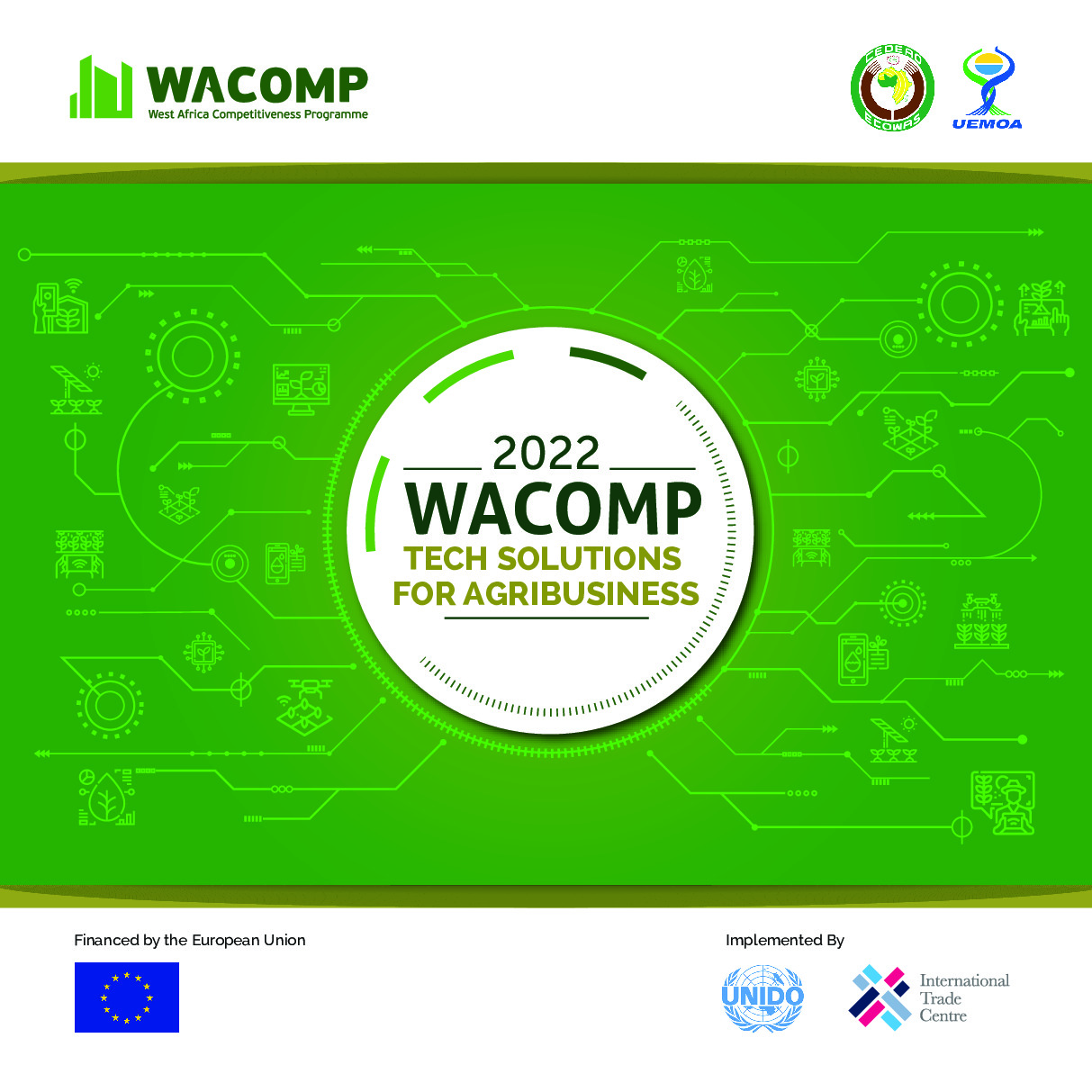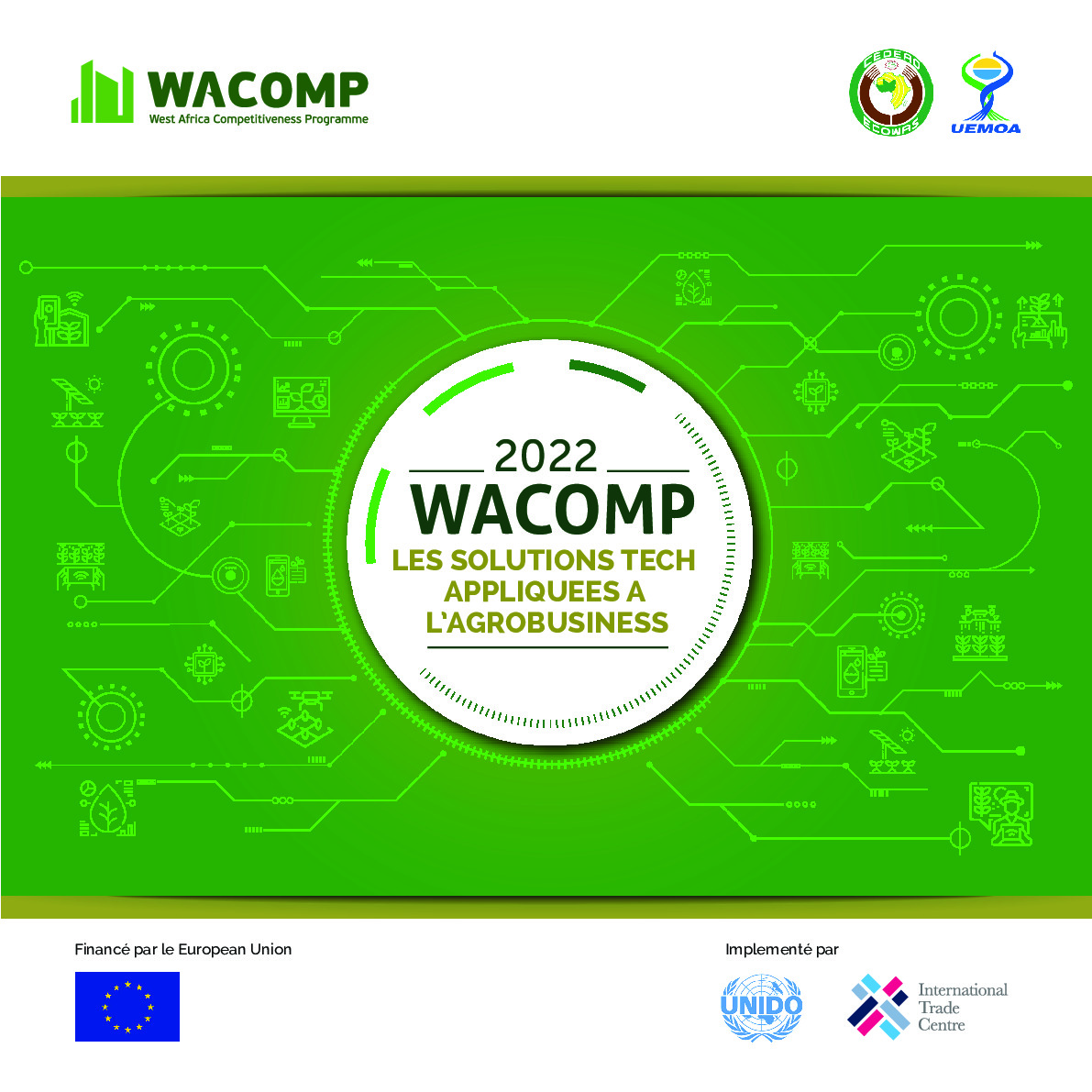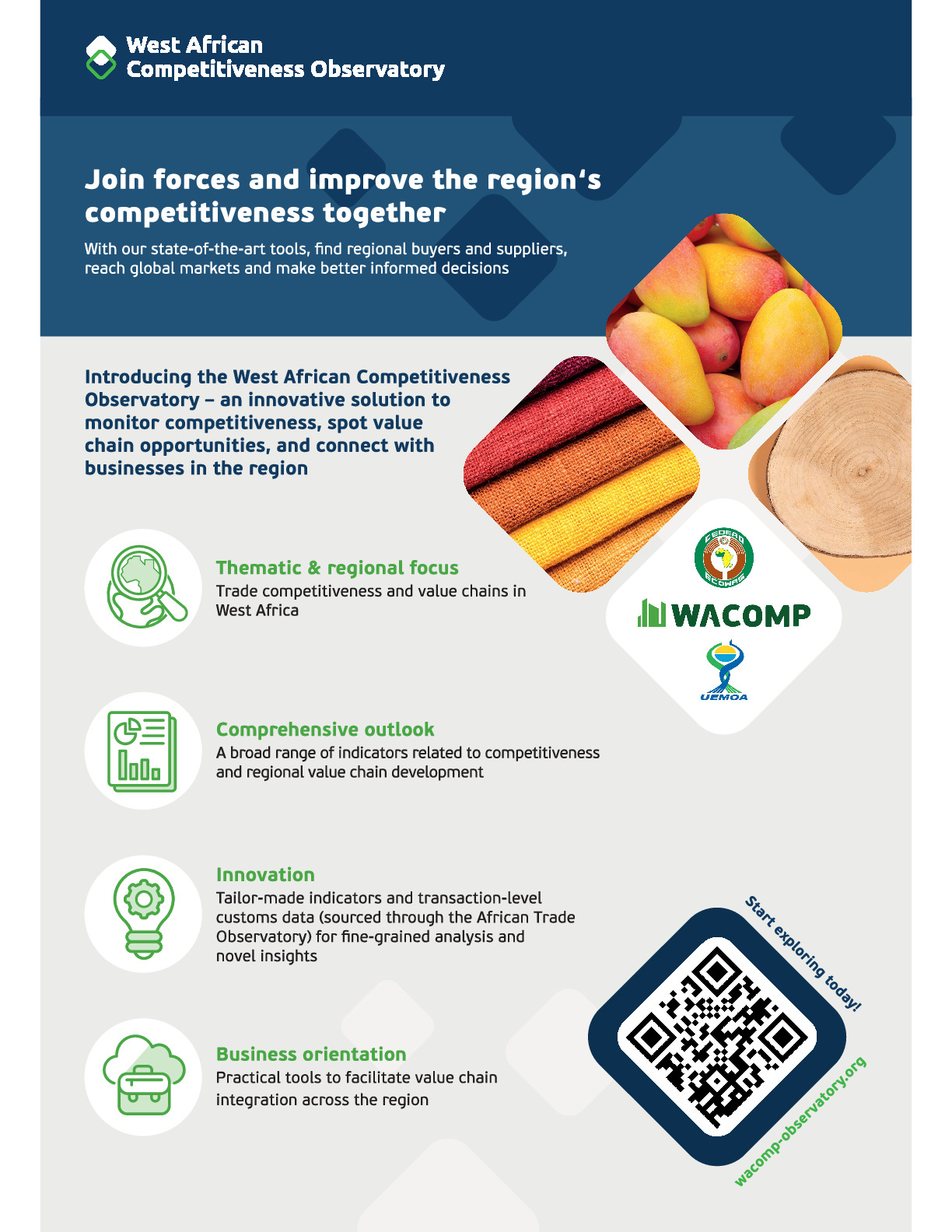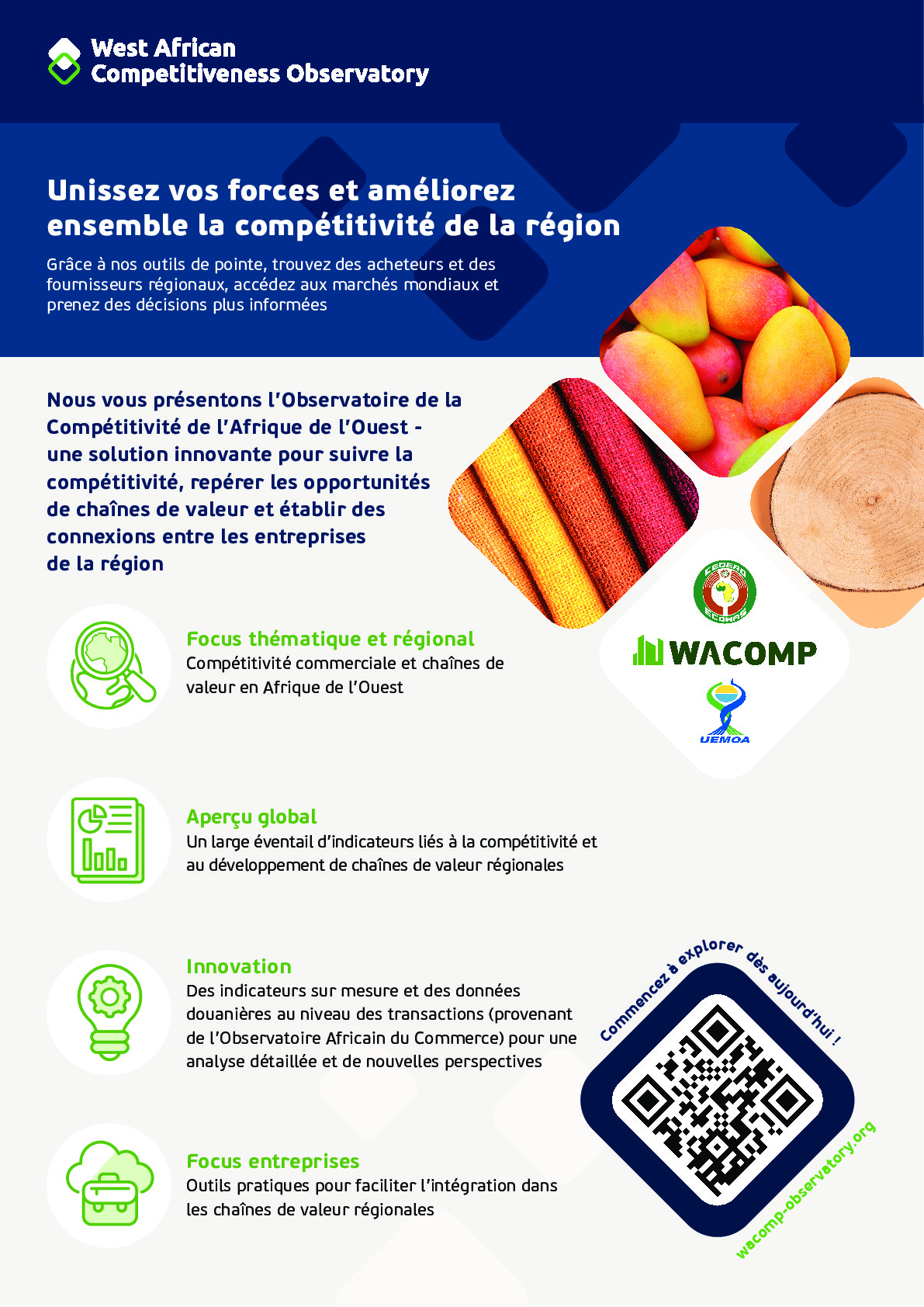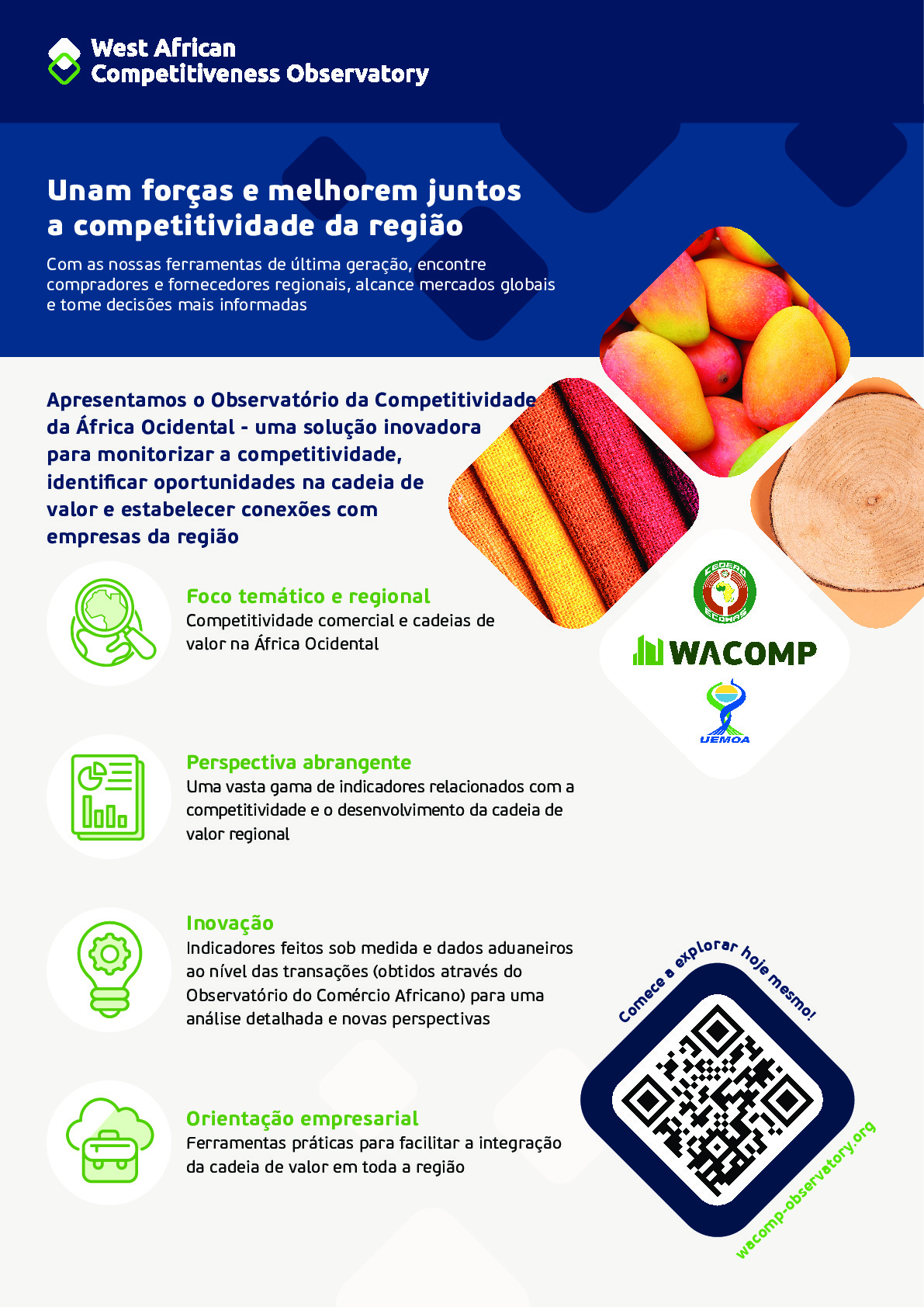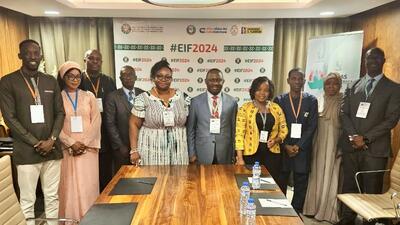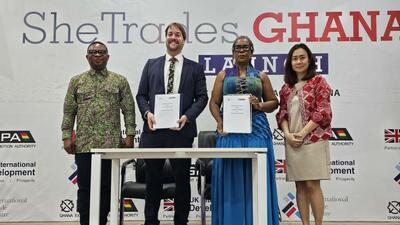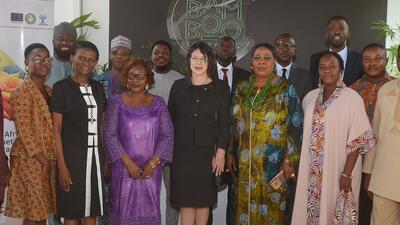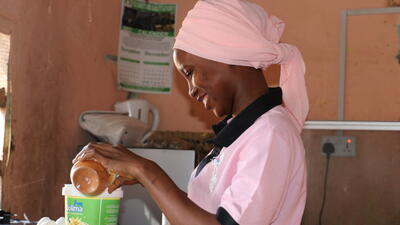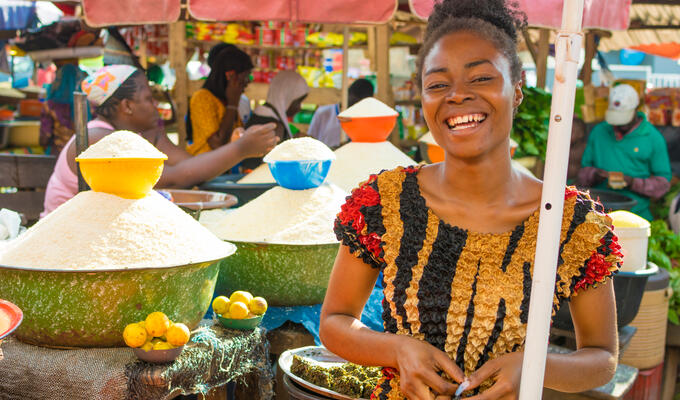


ECOWAS: West Africa Competitiveness Programme (WACOMP)
Overview
Summary
The overall objective of the regional programme is to ‘’Strengthen the competitiveness of West Africa through an enhanced level of production, transformation and export capacities of the private sectors in line with the regional and national industrial and SME strategies’’. The specific objective is ‘’to improve the performance and growth of selected priority sectors and value chains and related services by stimulating their contribution to industry, regional trade and exports’’. The intervention of ITC in the form of the West Africa Competitiveness Programme (WACOMP) will entail the implementation of the activities related to the promotion of better regional linkages among selected value chain, support to key regional intermediary organizations, the reinforcement of industrial competitiveness in the region, and the establishment of the West African Competitiveness Observatory and related business tools.
Partners
Sustainable Development Goals
Projects
Expanding West African trade
The goal of the International Trade Centre (ITC)’s West African Competitiveness Programme, or WACOMP, is to increase regional integration through trade. To that end, we focus on promoting conducive business environments and greater participation of the private sector in a public-private dialogue on trade policy.
In the regional programme we concentrate on improving micro, small and medium-sized enterprises’ (MSMEs) access to secure investments and improving their regional reach. We also work to advance production and processing in the agro-food industry.
To improve business performance and value chain connectivity, we are reinforcing national Trade and Investment Support Institutions as well as supporting the ECOWAS Trade Promotion Organisations Network to share best practices and insights.
Business tools
We are expanding the use of ITC technological tools to gather comprehensive information in the region. The Trade Obstacles Alert Mechanism (TOAM) identifies existing trade obstacles to ensure the regional flow of trade improves once these obstacles are addressed.
ITC has also embedded the ECOWAS trade map tool (ECOTIS) in the ECOWAS Commission’s website to assist with tracking trade performance and capitalize on potential trade opportunities in the region.
With its user-friendly interface and up-to-date information, the West African Competitiveness Observatory serves as a monitoring tool on the competitiveness of West African countries and the region. It supports policymakers in the region to better define policies that foster competitiveness and value chain development. The observatory also supports local firms, small and medium enterprises, to establish and participate in regional value chains.
The West Africa Competitiveness Observatory includes three modules. Competitiveness is the first module, and the beta version was launched in May 2023. Policymakers can monitor trade competitiveness and its drivers, providing comprehensive insights into trade dynamics. The second module is the upcoming Regional Value Chain Module which will furnish detailed information on sectors to empower businesses and policymakers to increase participation in regional value chains by identifying growth opportunities. The third and upcoming module is the Business Matchmaking Module. It will facilitate connections between companies, promote collaboration and expand market reach to enhance competitiveness in the region.
Overall, the WACOMP Observatory serves as a catalyst to enhance competitiveness, drive innovation, and foster a conducive business environment across the region.




















